|
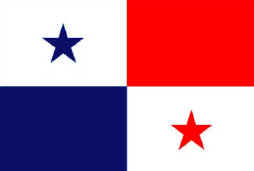
|
Passage
from Jamaica to Panama - 597 miles
October
9,
2007 - October 15, 2007
|
|
|
The passage from Jamaica to Panama was supposed to
be a beam reach through the trade wind belt.
Pilot Charts are reference books that show what the recorded wind
and wave information are for the last 100 years in most oceans and
bodies of water. The Pilot
Charts indicate that during the month of October on the passage from
Jamaica to Panama that the wind blows out of the east at 15-20 knots
about 90 percent of the time. Well,
we seemed to find 100% of the 10% of the time that the wind did not
blow. We were able to sail
for several hours here and there, using squalls and localized
micro-fronts to slingshot us 10 or 15 miles, but on the whole the trades
never filled in.
On the second and third day, we did pick up some
wind, but it was straight out of the south and right on the nose.
We spent the better part of 24 hours tacking – first southeast
and then southwest, but we found this to be futile as a substantial
current was against us on the southeast tack.
During those 24-30 hours we made only 15-20 miles of southing,
and eventually realized that this tactic was not going to be successful.
At this point, we were forced to make plans based
on the fact that if the wind never did cooperate, we were facing a
serious issue, as we most likely didn’t have enough fuel to motor the
entire distance. As a
result, we began using only one engine at a time, always keeping the
RPMs in the 1500-2000 range in order to conserve fuel.
At low RPMs, the engines become very fuel efficient, and even
though we rarely moved at over 4 knots, we surmised that this was our
best bet at making landfall any time soon.
And so it went for close to 300 miles.
Sunrise became morning – morning became afternoon – afternoon
became dinner – dinner became sundowners – sundowners became talking
about the night watch schedule – a little sleep – a few hours on
watch – a little more sleep – and sunrise came to start it all over
again. All the while, we
prognosticated, forecasted, made assumptions, made predictions, read
weather books, studied the clouds, and even said a few prayers – all
focused on the big question – “Where are the trades?”
With 120 miles to go, we realized that we could no
longer make any plans that included hoping for the wind – there was
none. We knew that we were
low on fuel so we started doing some calculations to see just what our
situations was, and the result was that making landfall on the diesel
that we had was questionable at best.
So, the last resort option came out and after a few
hours of discussion, we decided to pull the trigger.
We stopped the boat, lowered the dinghy and moved it around to
the starboard side of the boat and rigged a spring line from Stray
Cat’s aft cleat to a pad eye on the front of the dinghy.
We then rigged the dink’s bowline to Stray Cat’s bow
cleat. When all was tight
and looked right, we revved up the Yamaha 15hp, and off we went – at a
blistering 2.5 knots. The
dink was doing an admirable job pushing us along, and for as long as we
could keep that Yamaha running, we could move along at 2 to 3 knots
without running the diesels, thereby conserving fuel that we would need
to make landfall and enter the harbor. We also had a nice current of 1 knot and managed to stay
between 3 & 4 knots most of the time.
We were carrying approximately 14 gallons of gasoline on board,
but none of us were sure of how long that amount would last because none
of us had much experience pushing a 22,000
pound boat with a 15 hp outboard motor.
We started with the “Dinghy Push Project” at about
9am on Sunday morning. At
about 11am, a squall came up and we were able to get the genny out and
pulling for about 2 hours, which helped the dink get us up to 5 or 6
knots. Finally, at around
5pm, the first 4 gallon fuel tank ran dry, and we switched to our second
4 gallon tank. Then right
before dark at about 7pm, we switched to the larger 6 gallon tank so
that we would have the least possible chance of having to make any
adjustments to the dinghy during the night, when it would be infinitely
more dangerous. We
“motored” through the dark for hours, and then at 5am, on Capt.
Mark’s watch, the Yamaha finally sputtered and died. Back to slow motoring on one diesel engine until sun-up, but
by that time, we had come within 30 miles of Panama, and because of the
heroic actions of our little 10 ft dinghy and 15hp Yamaha, we were now
pretty confident that we had enough fuel to make landfall and get into
port. The dink had pushed
us for almost 24 hours and helped us make almost 60 miles.
Not quite as good as having the trade winds on the beam, but it
got the job done. The next
morning we tried to get the dinghy going again, but the motor wouldn’t
start – it seems that during the night, the strengthening waves had
splashed into the dinghy and some water had entered the fuel tank.
Capt Mark proceeded to take apart the carburetor and clean it at
least twice – all while underway, but alas, it didn’t help as the
gasoline was now contaminated. Oh
well, at least we made it to Panama. |
|
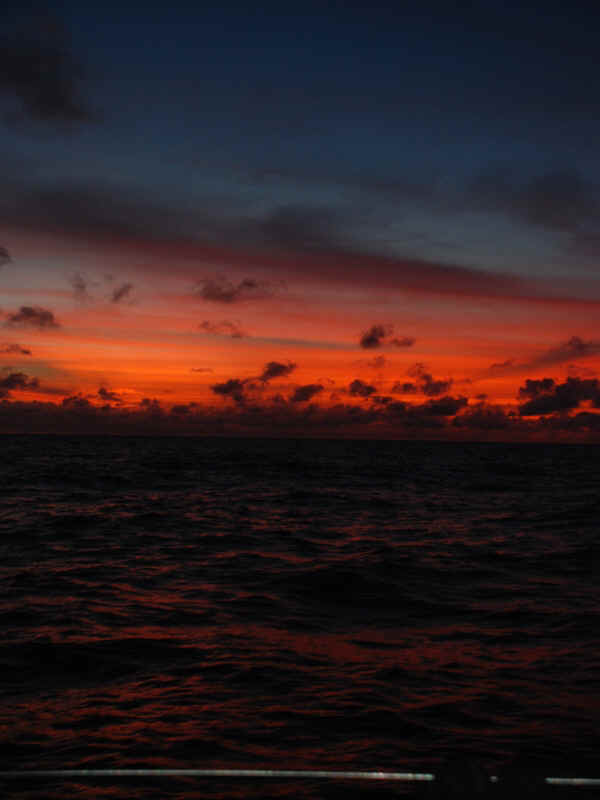
Sunrise
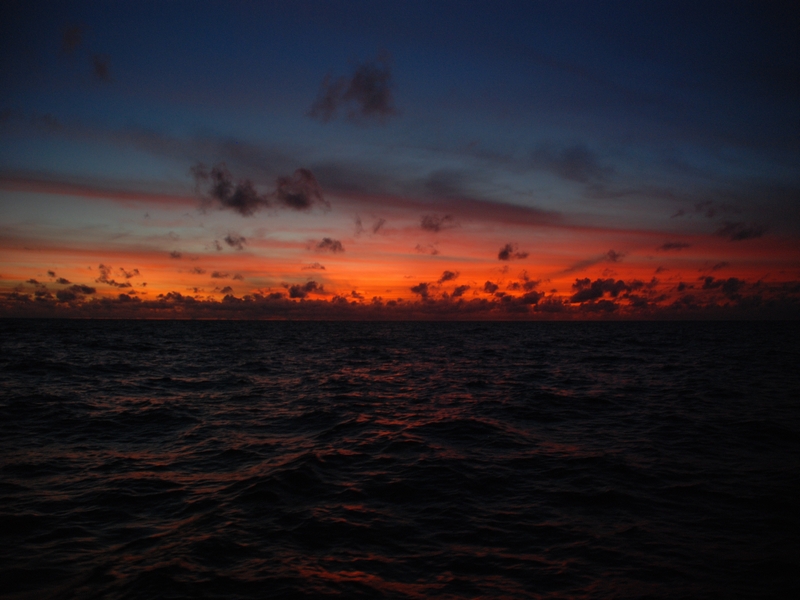
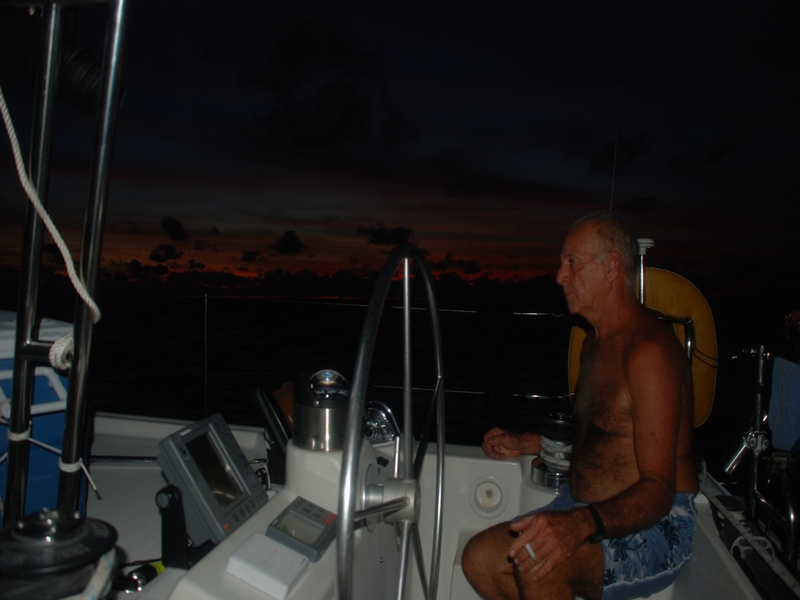
Capt Mark on sunrise watch
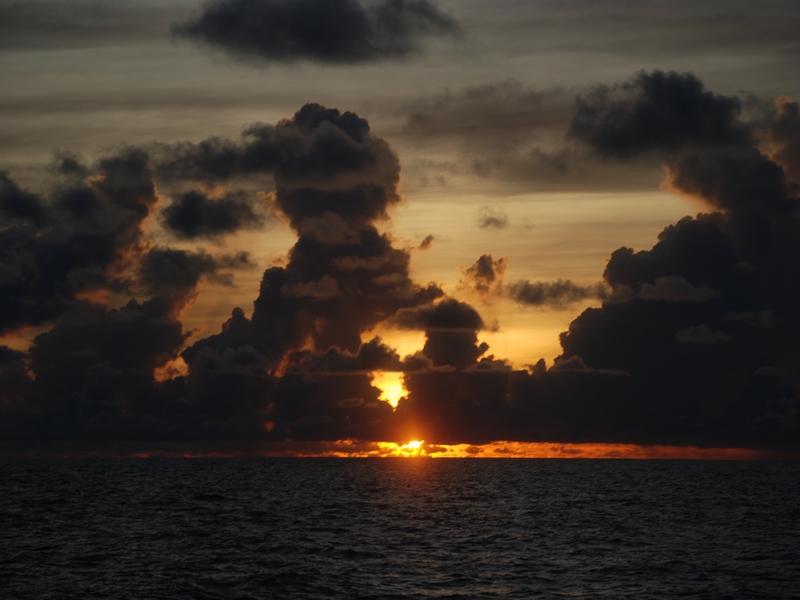
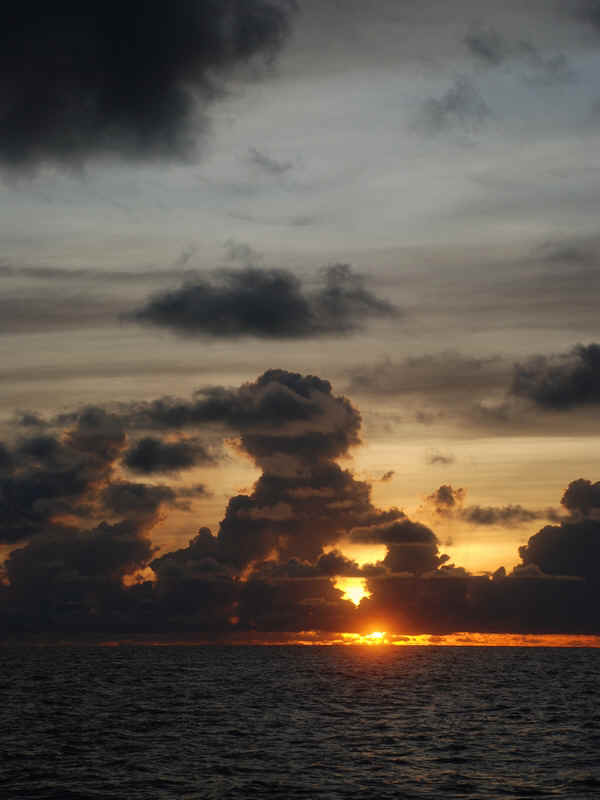
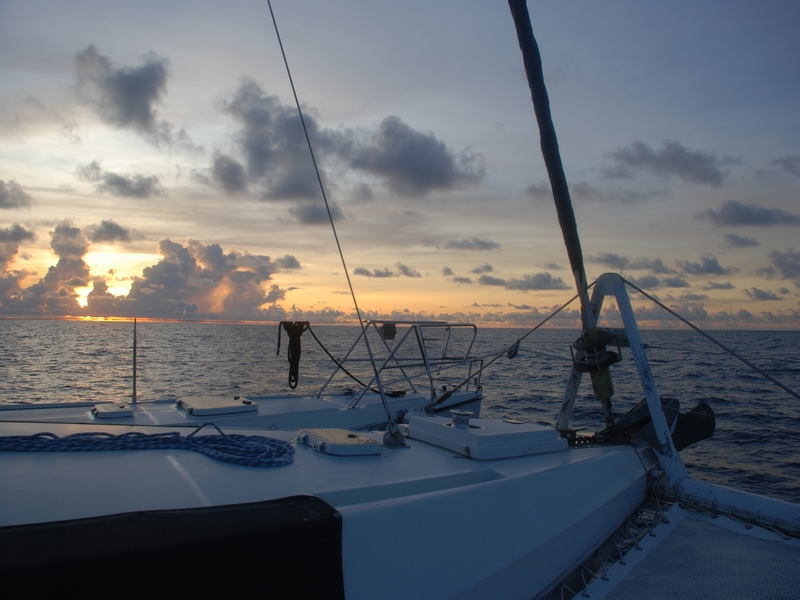
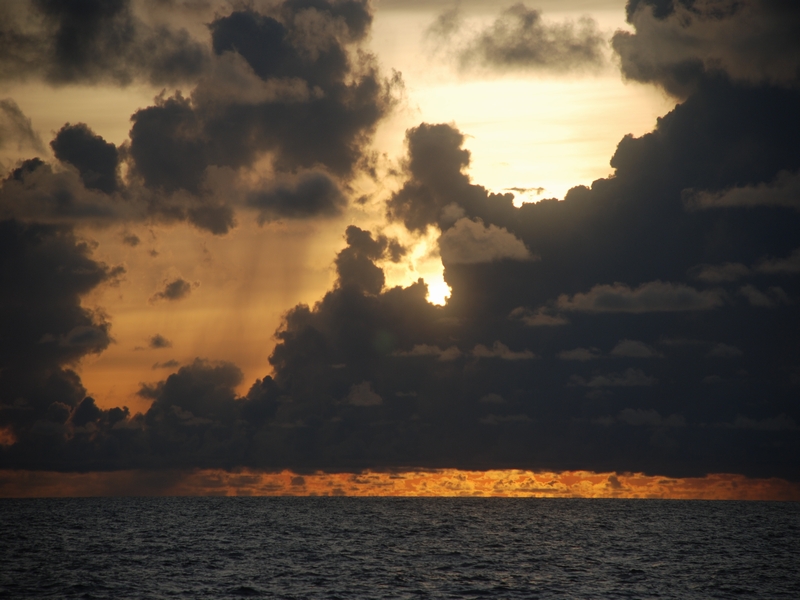
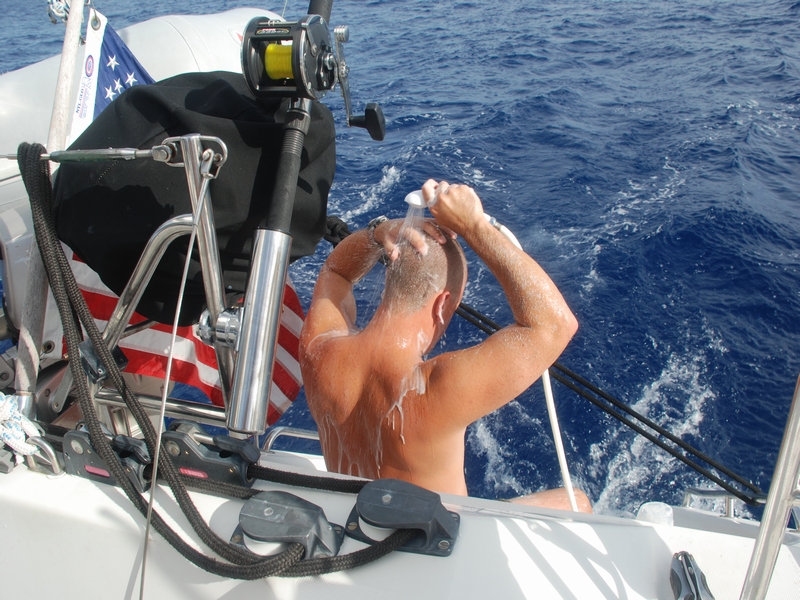
Mikey's transom shower
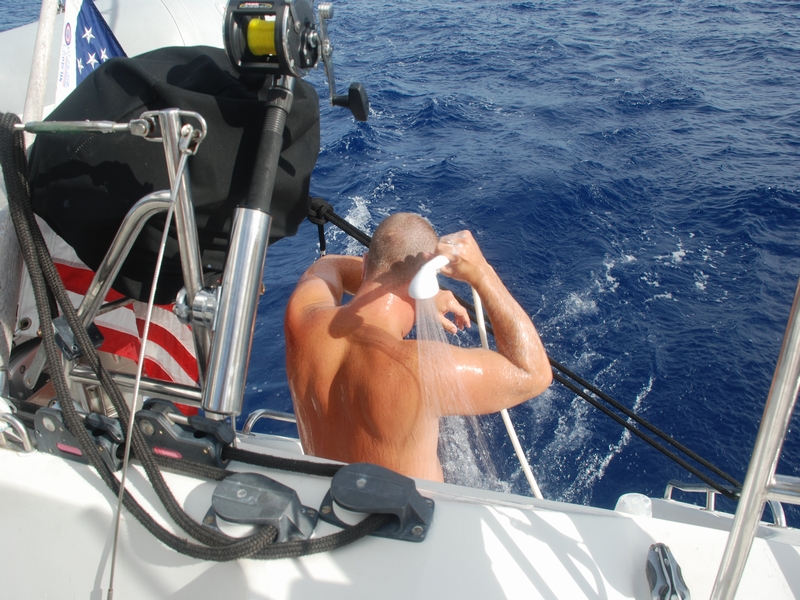
Look Ma I do Bathe!
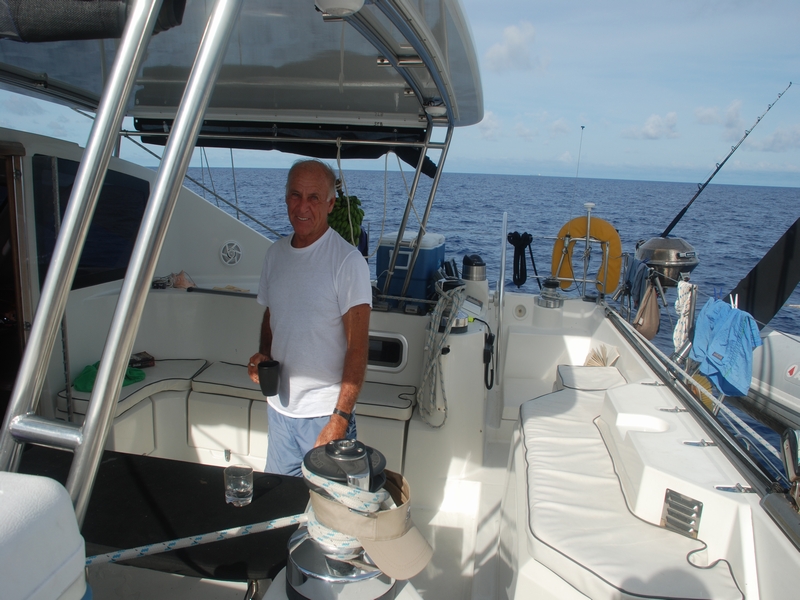
Are we there yet???
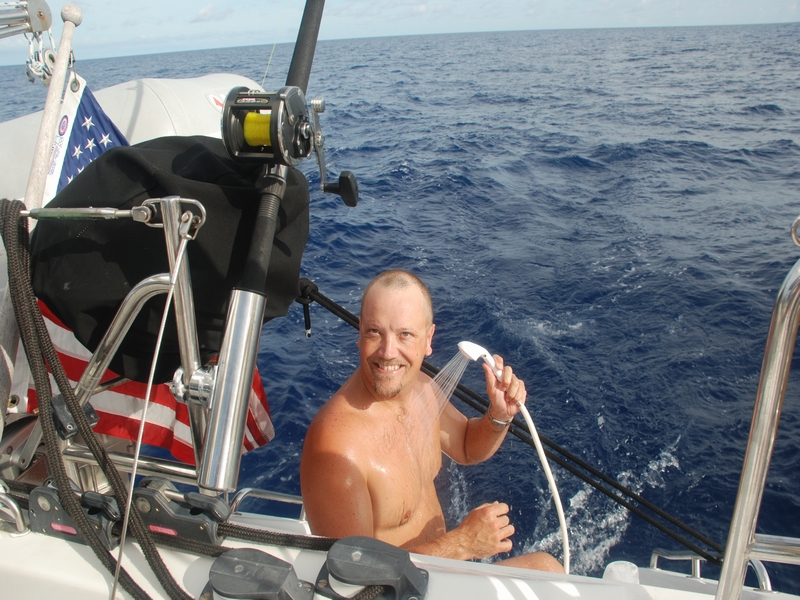
Fresh & Clean!
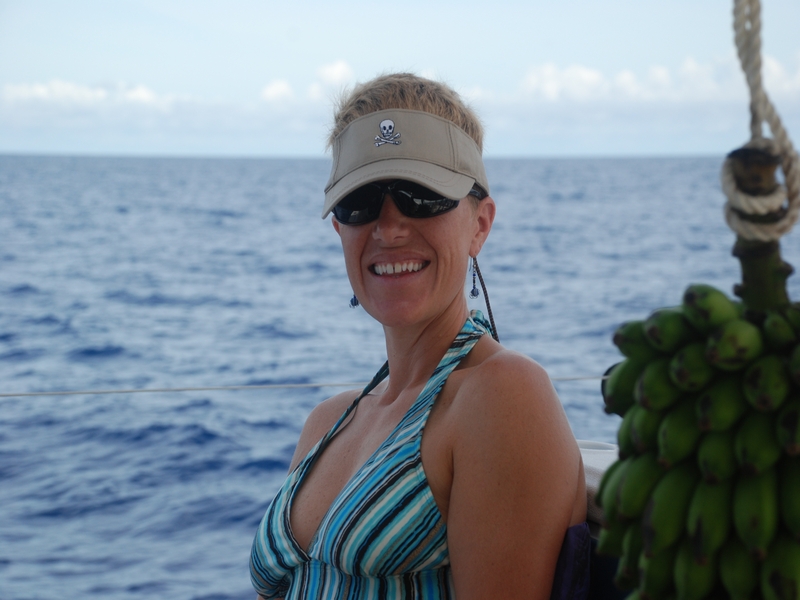
Still Going!
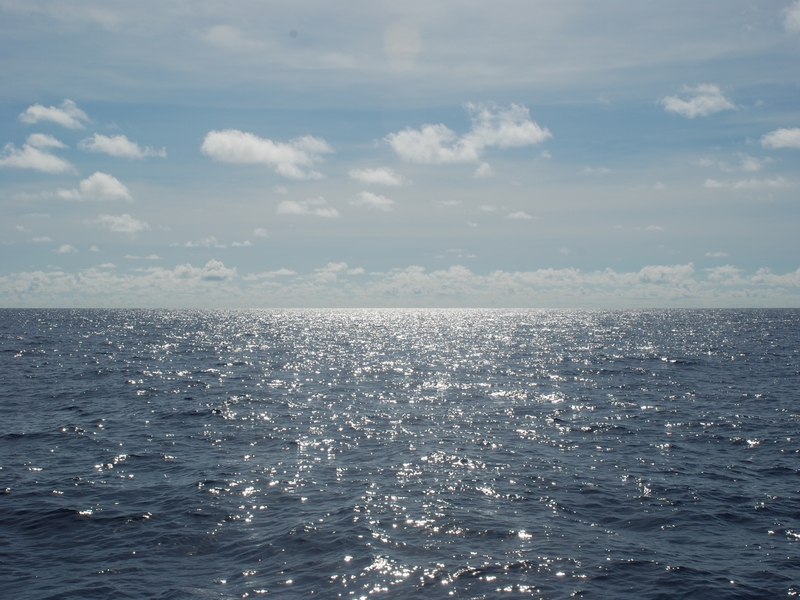
The diamonds on the water were sparkling!
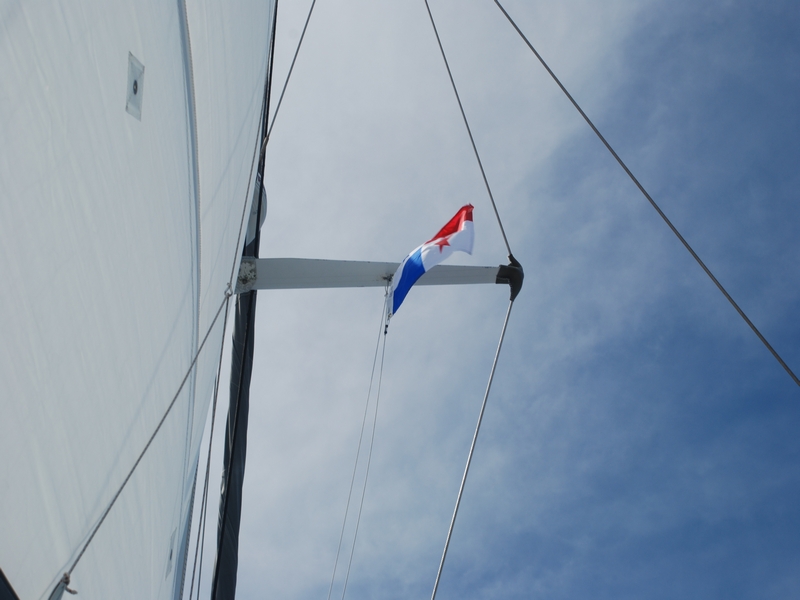
We changed flags to the Panamanian flag to try and change our
luck
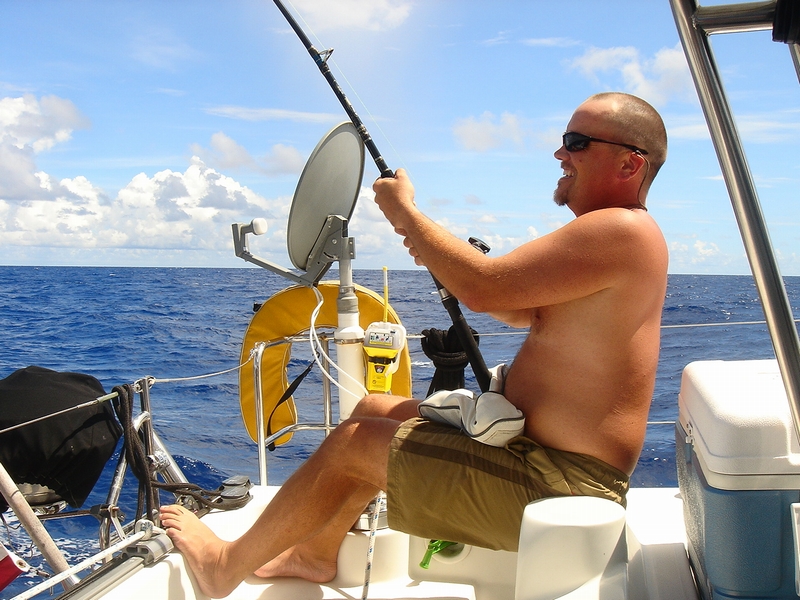
We had lots of fish on this day
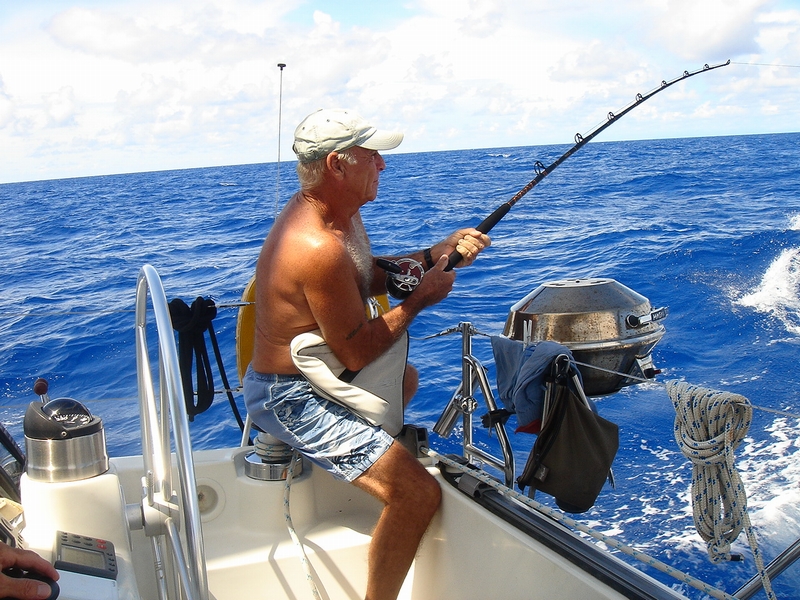
The Big ones all got away
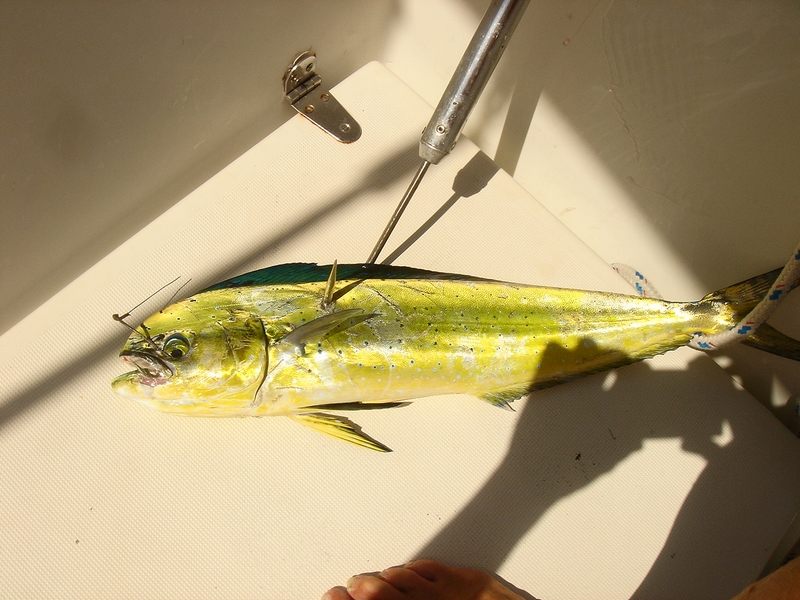
We did get a Mahi Mahi... Yummy!
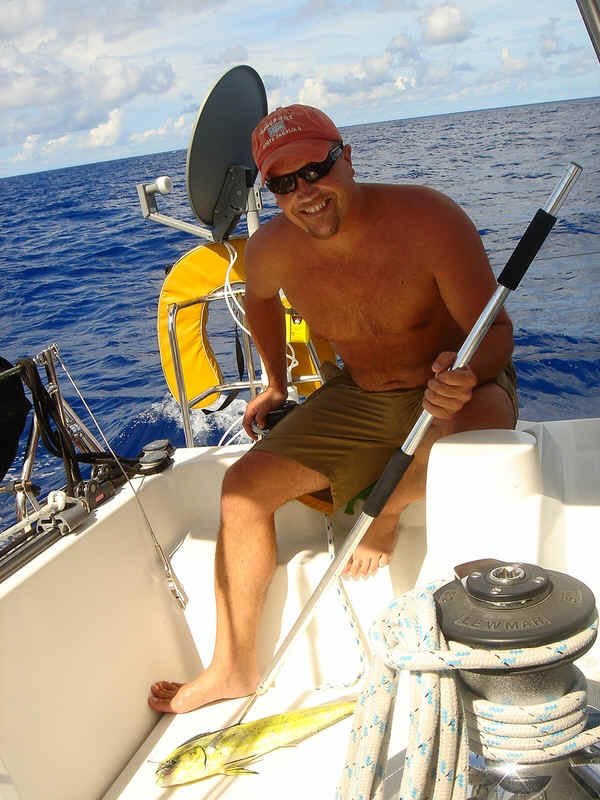
Thank God it did not get away!
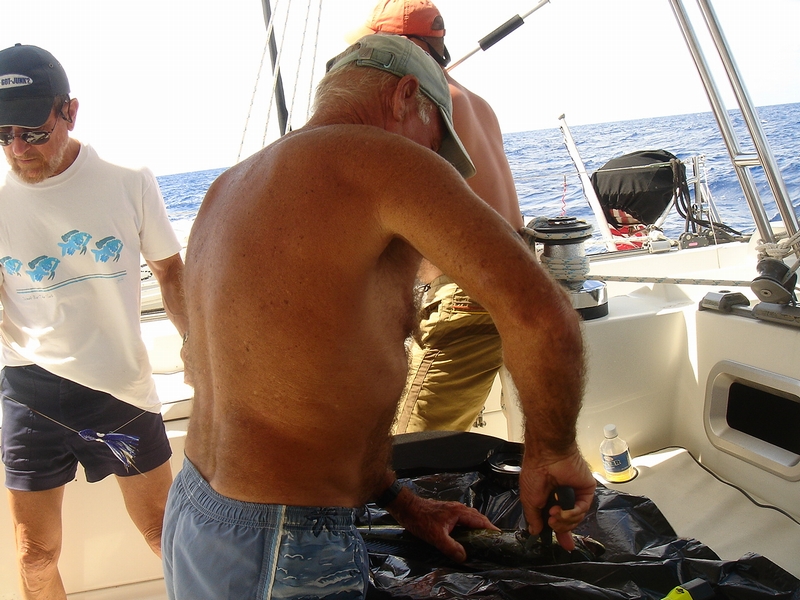
Capt Mark the Filet King
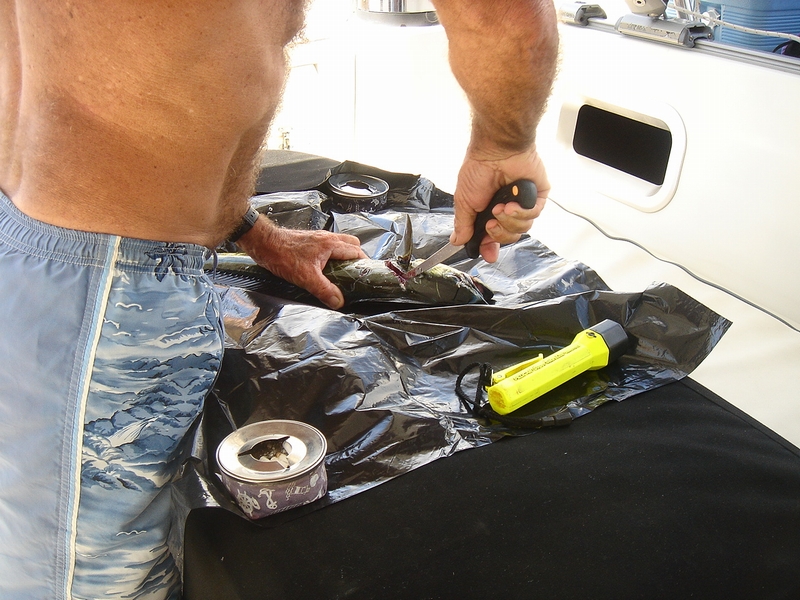
Does this hurt??
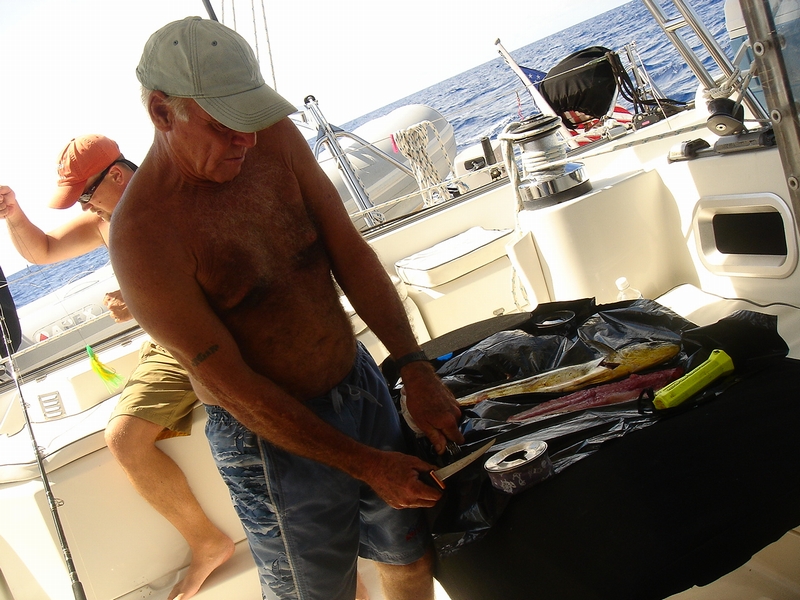
Side one
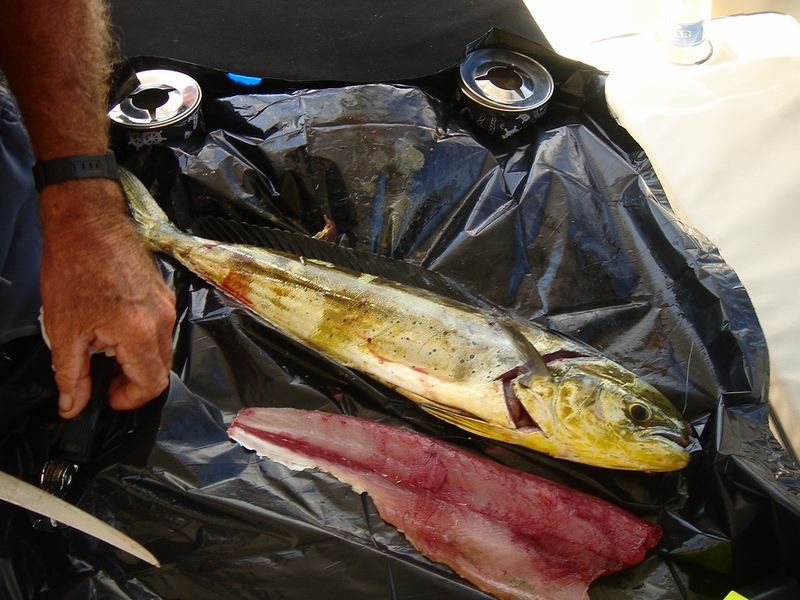
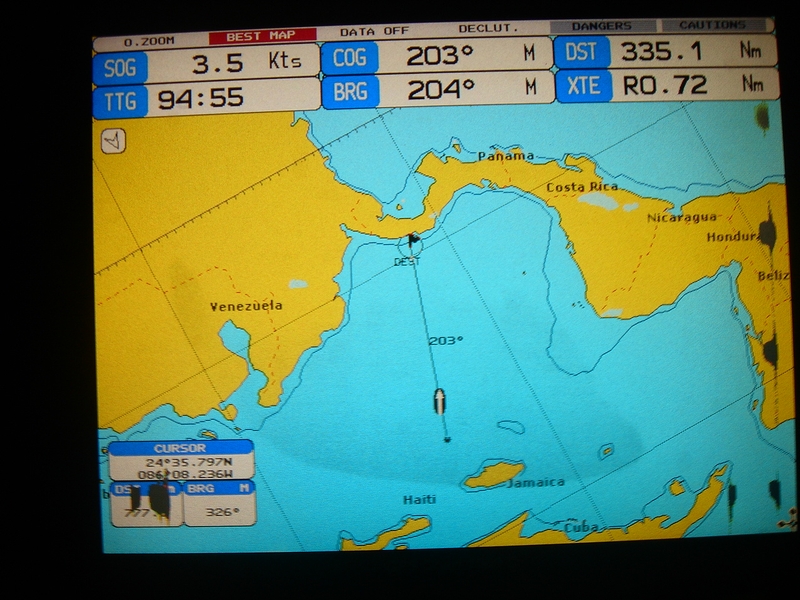
335 Miles to go
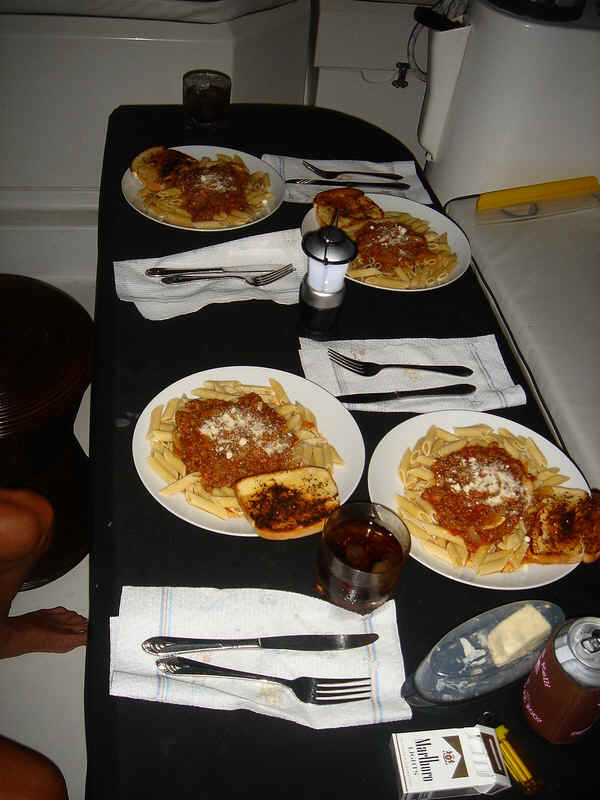
We starved most of the time and as you can see are wasting
away to nothing... NOT!!
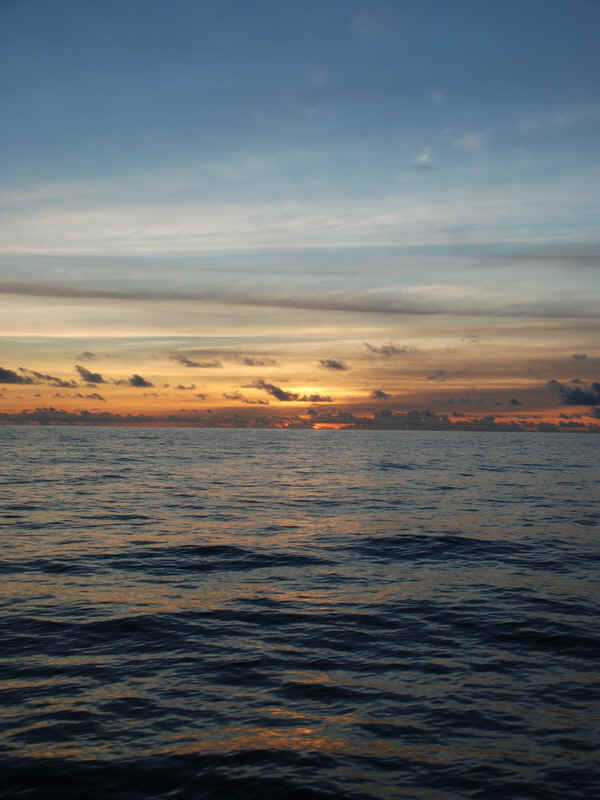
Another gorgeous sunset
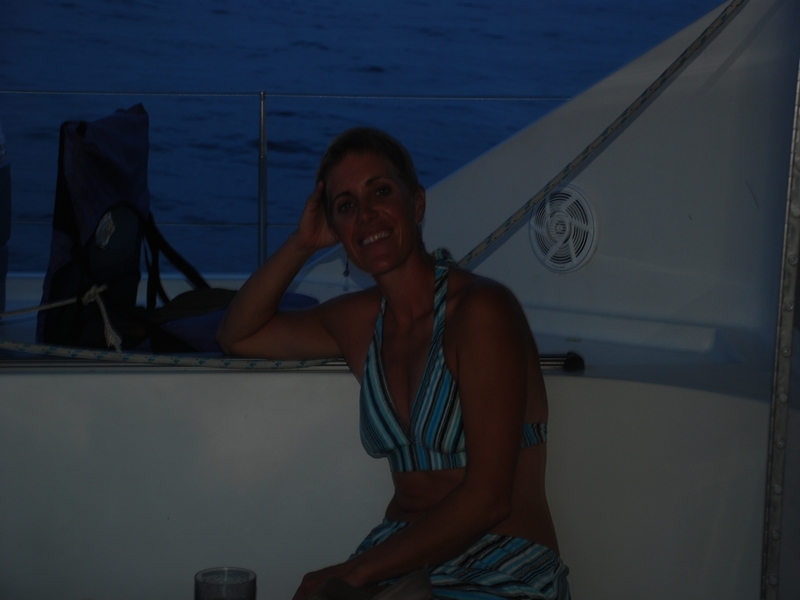
This does not suck!
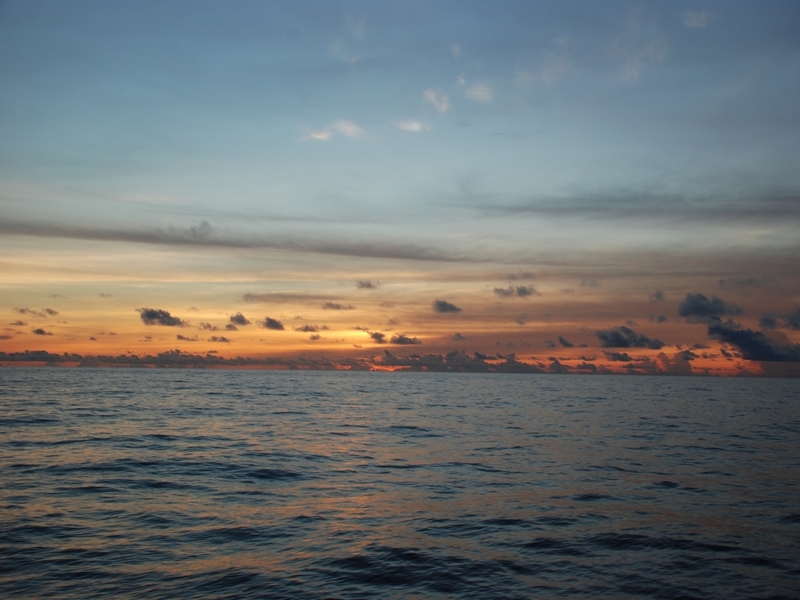
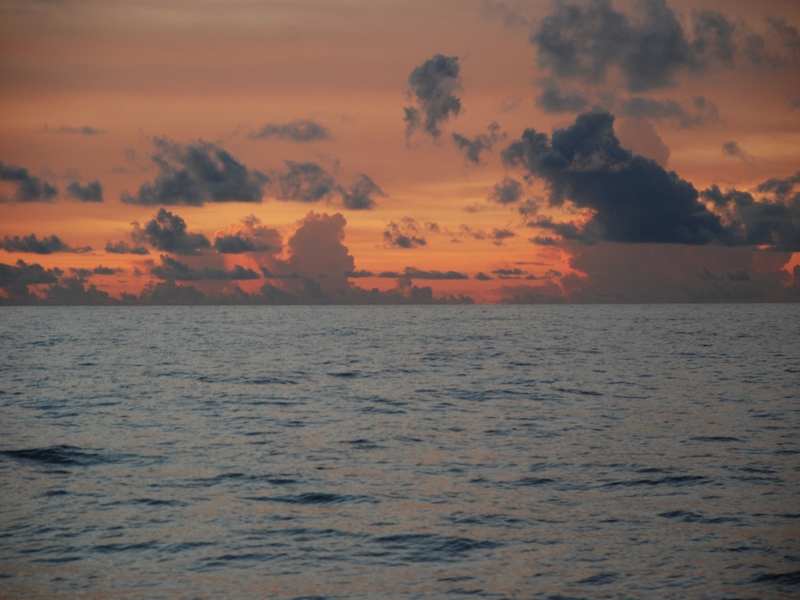
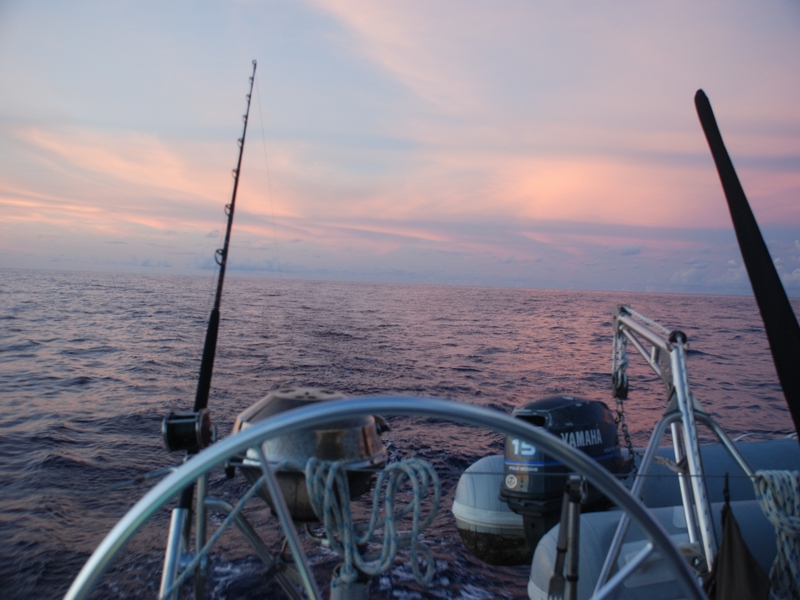
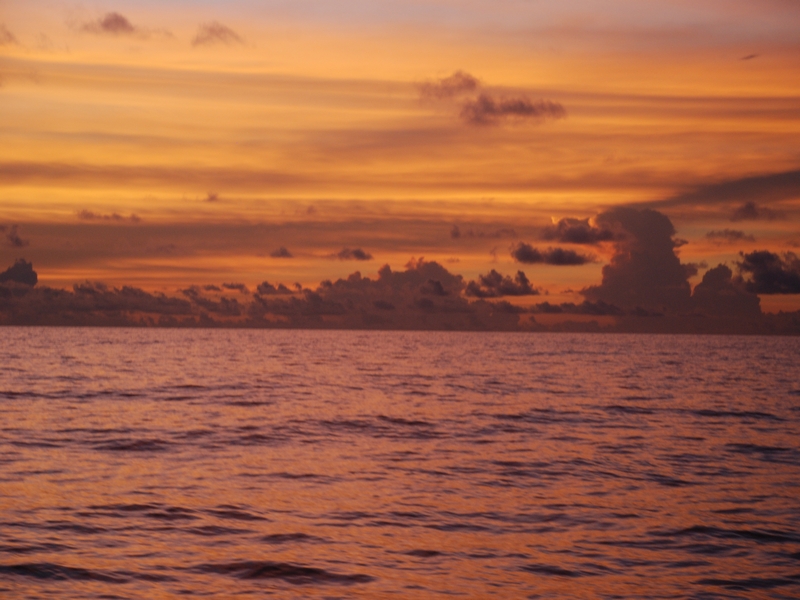
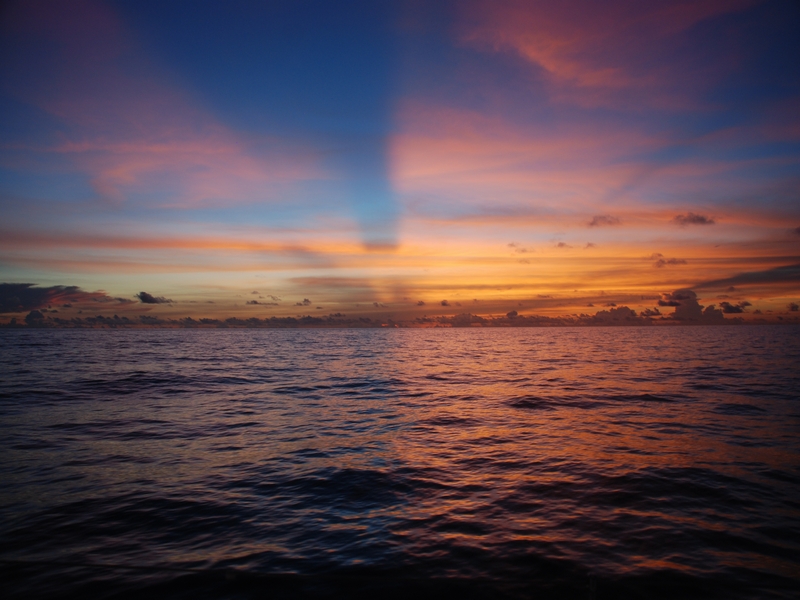
The sunset suddenly took on this odd half and half appearance
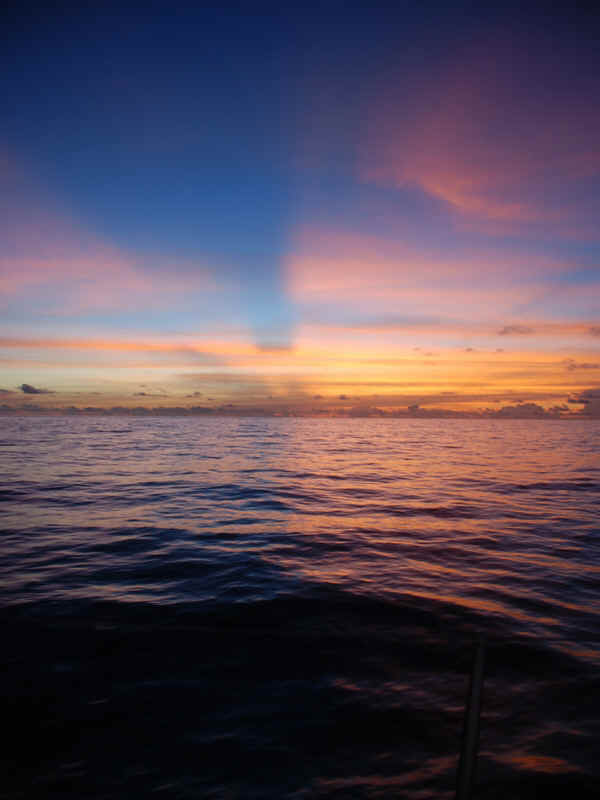
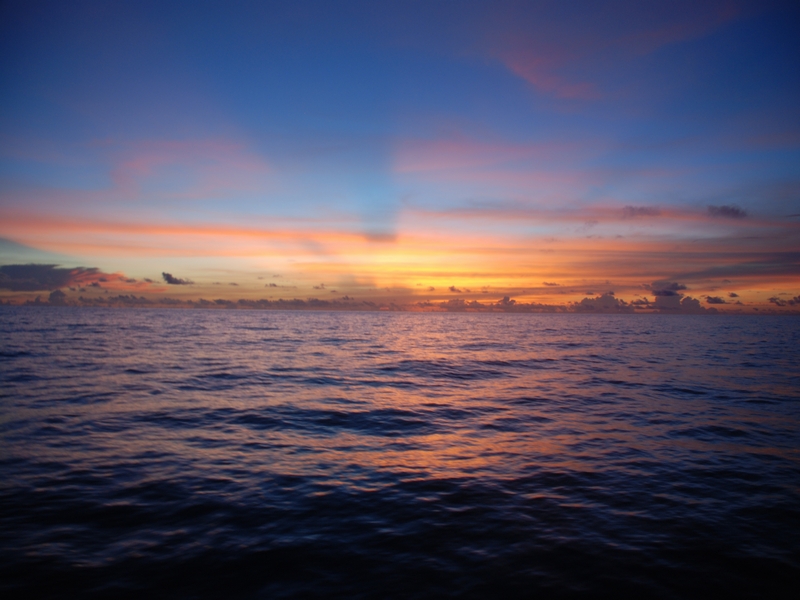
More night watches coming up...
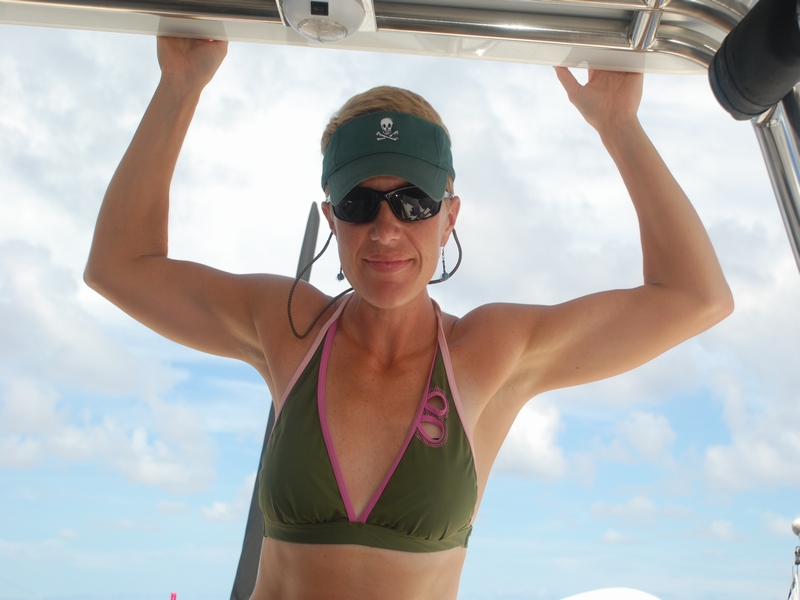
You catch 'em and clean 'em - I'll cook 'em
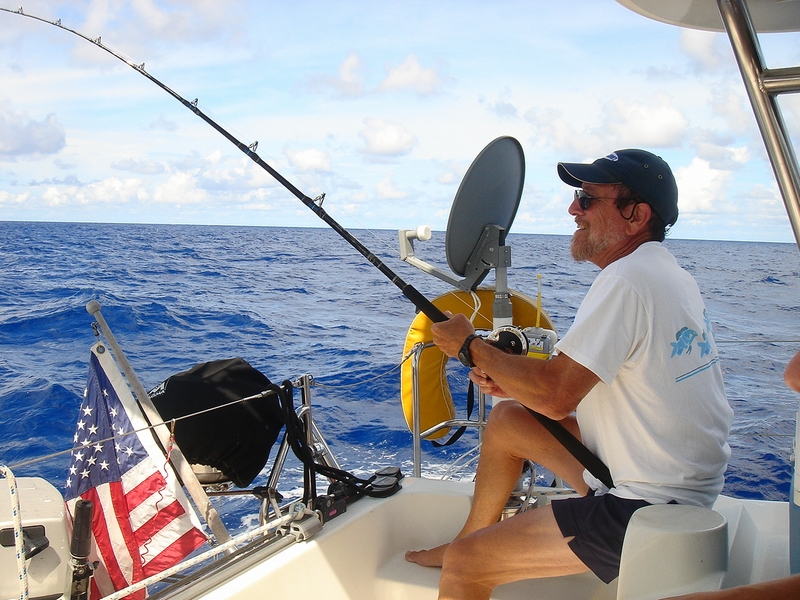
Capt Stu bringin 'em in
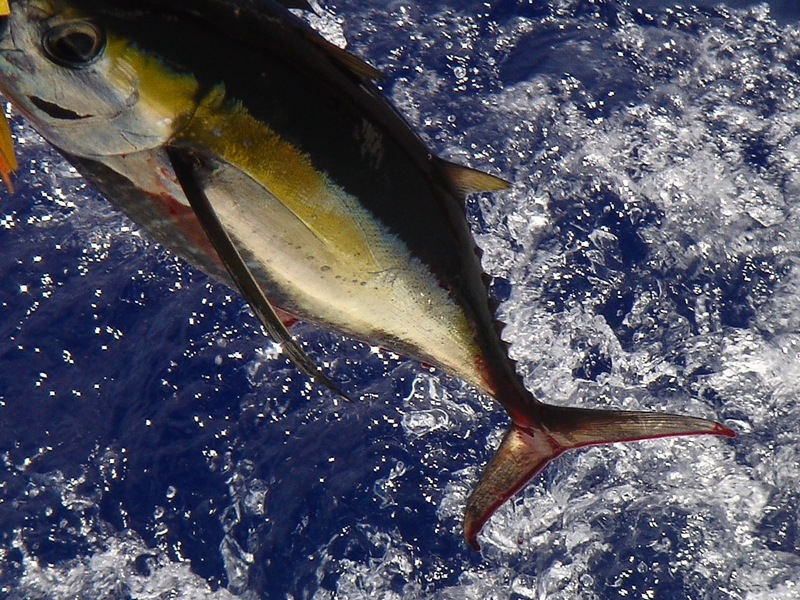
Yellow fin Tuner!
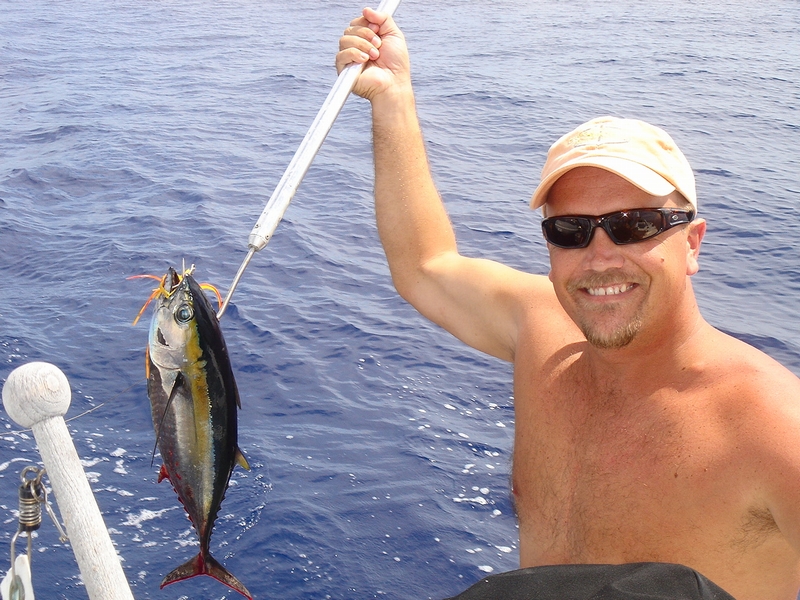
A little Tuna Torpedo!
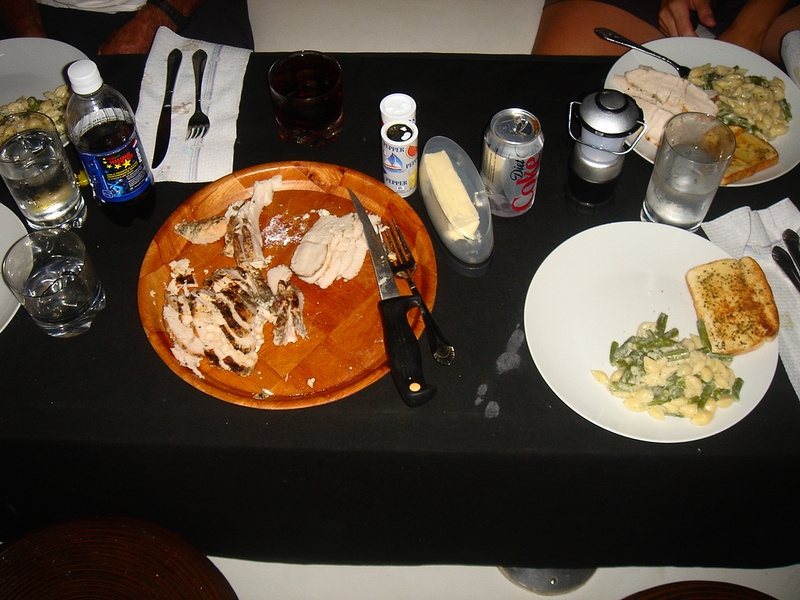
But he didn't make it to the dinner table that night
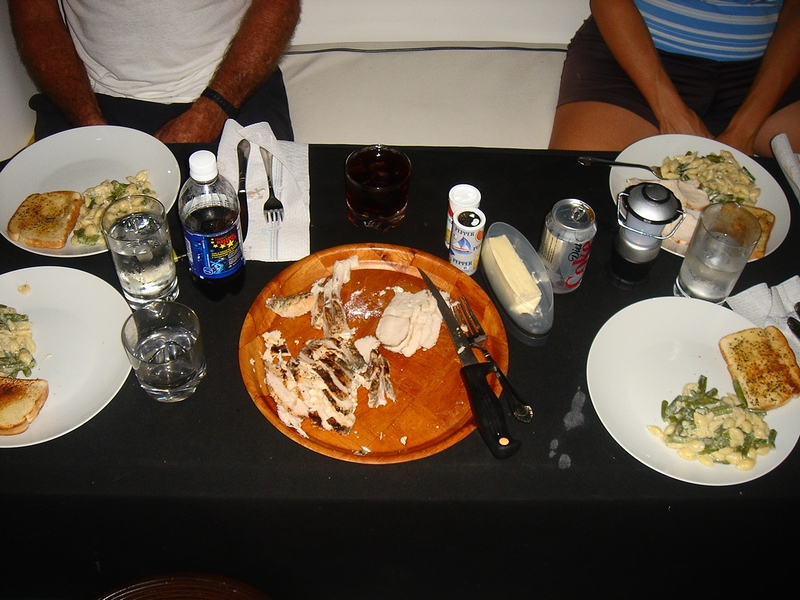
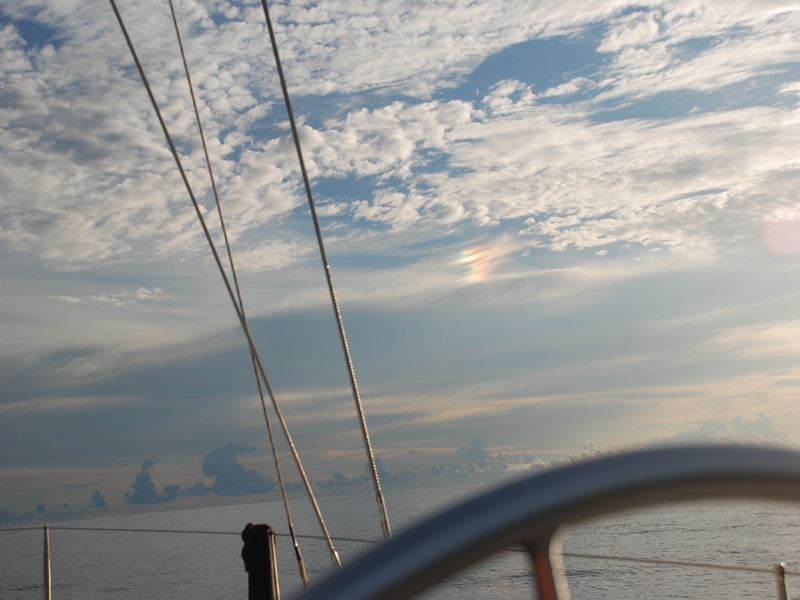
A rainbow in the clouds
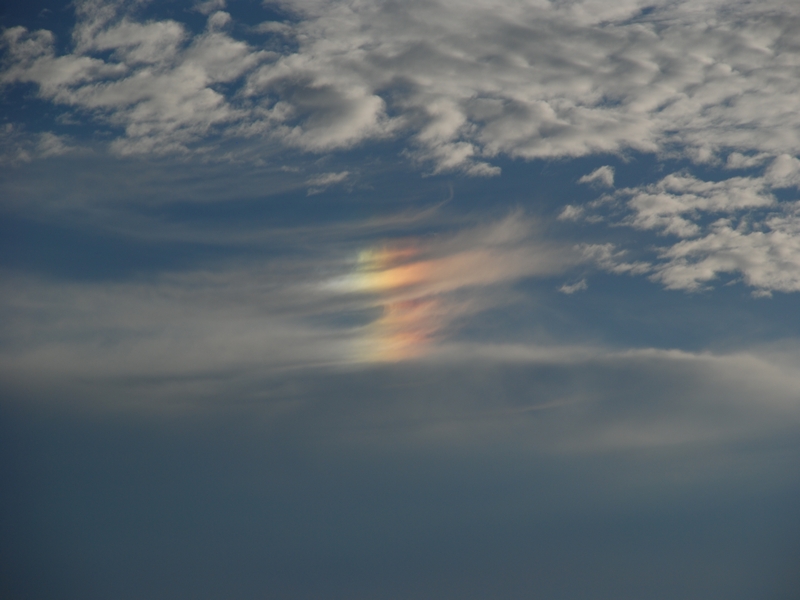
Rainbow...
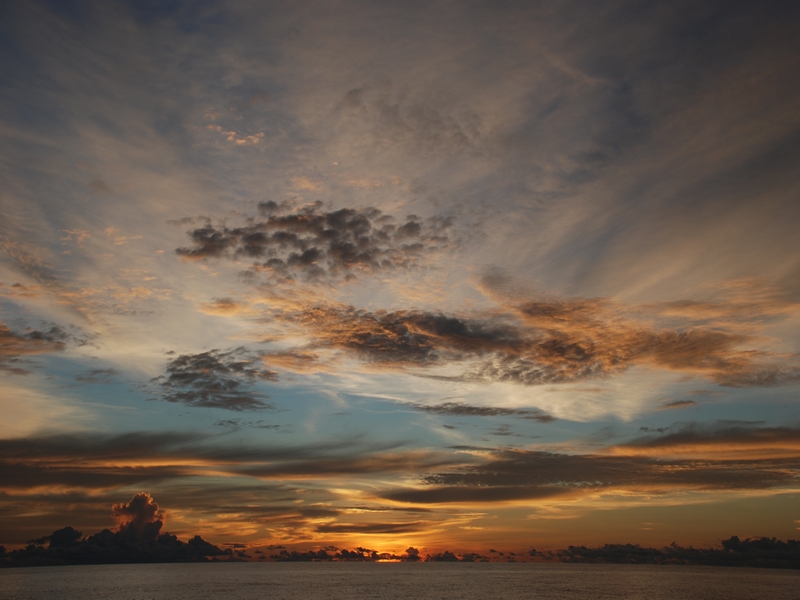
And another majestic sunrise... this one was probably the best,
so far
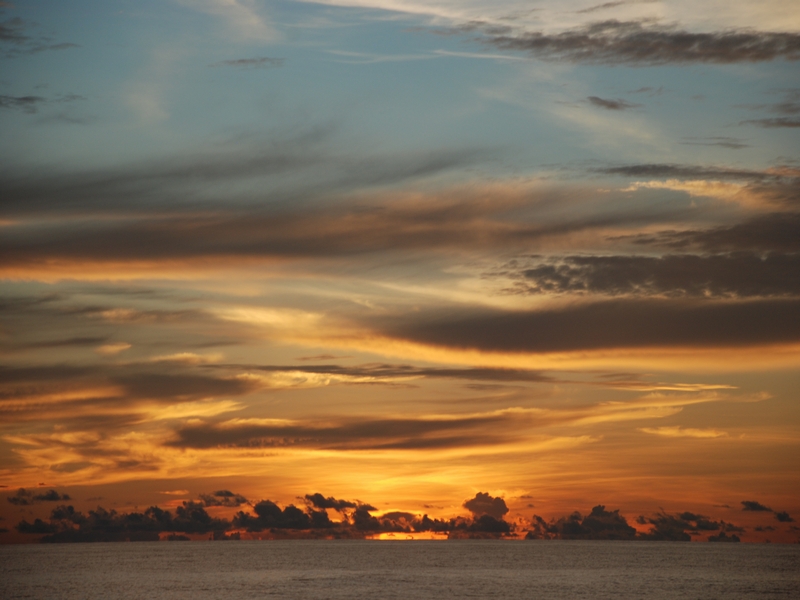
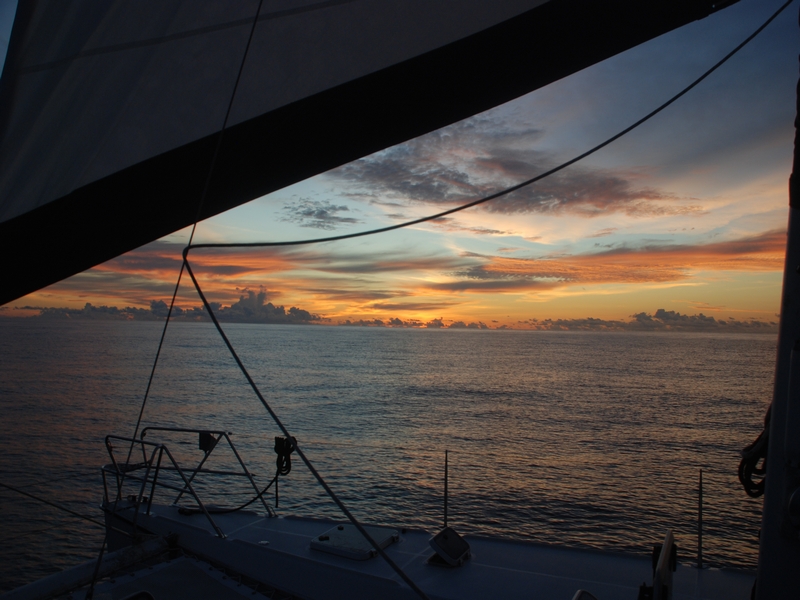
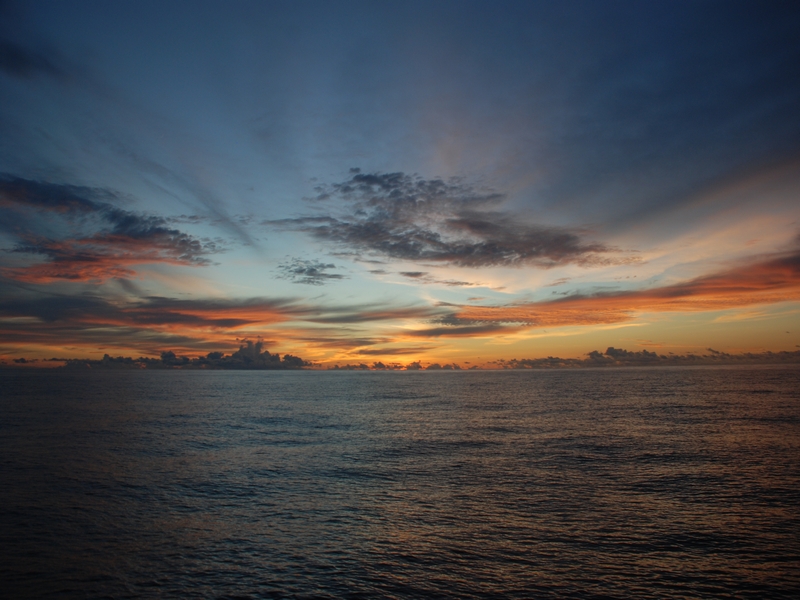
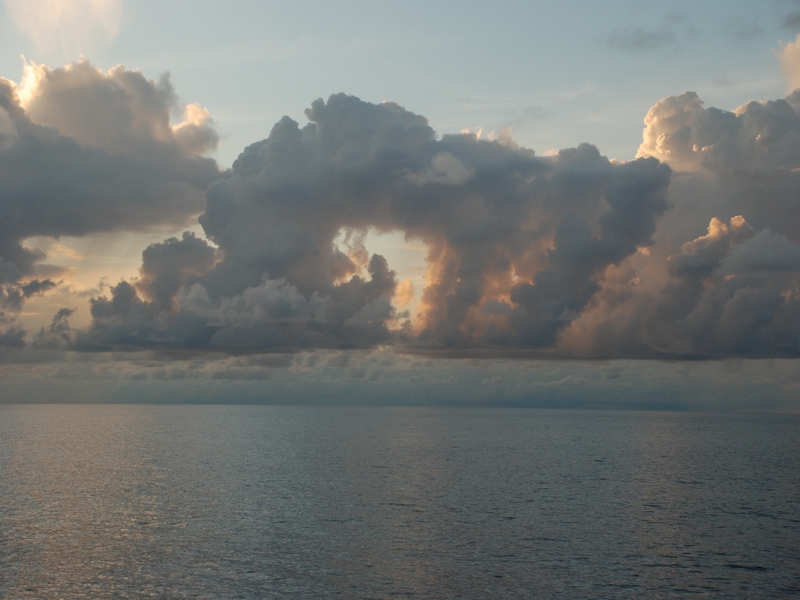
More clouds
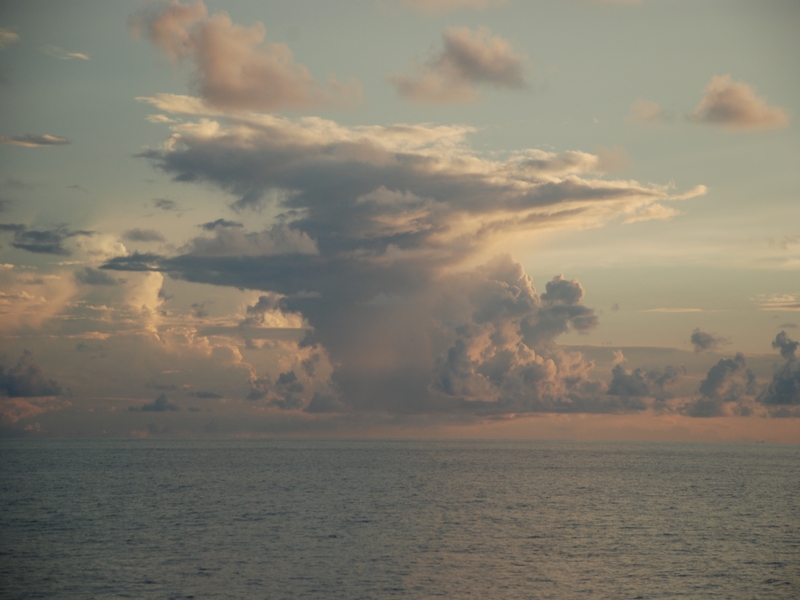
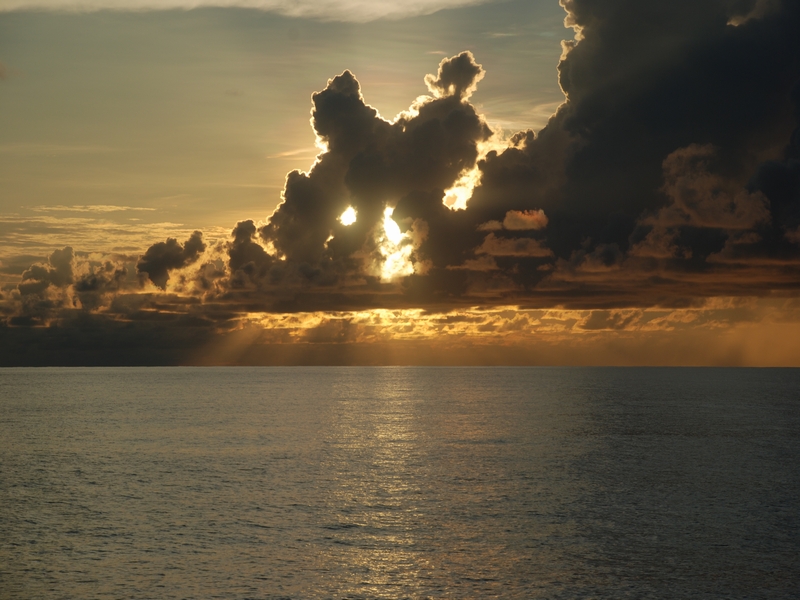
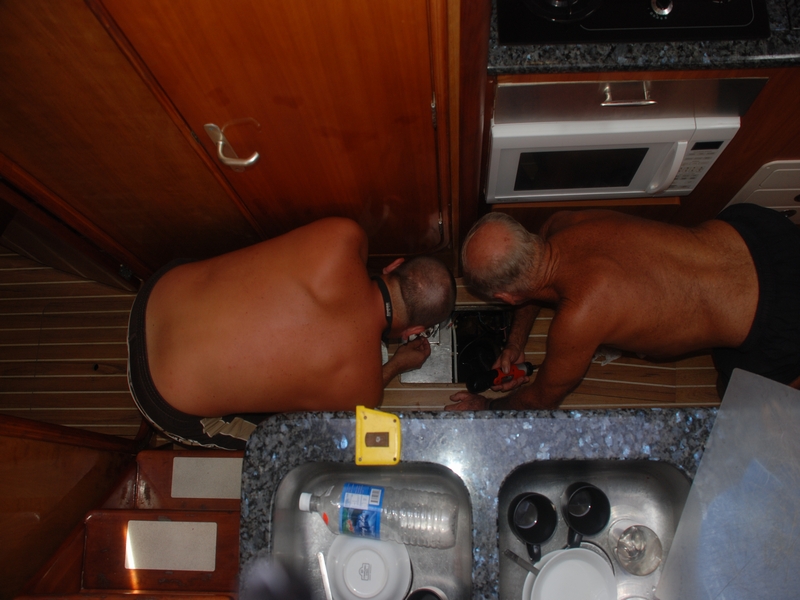
Checking the fuel tank
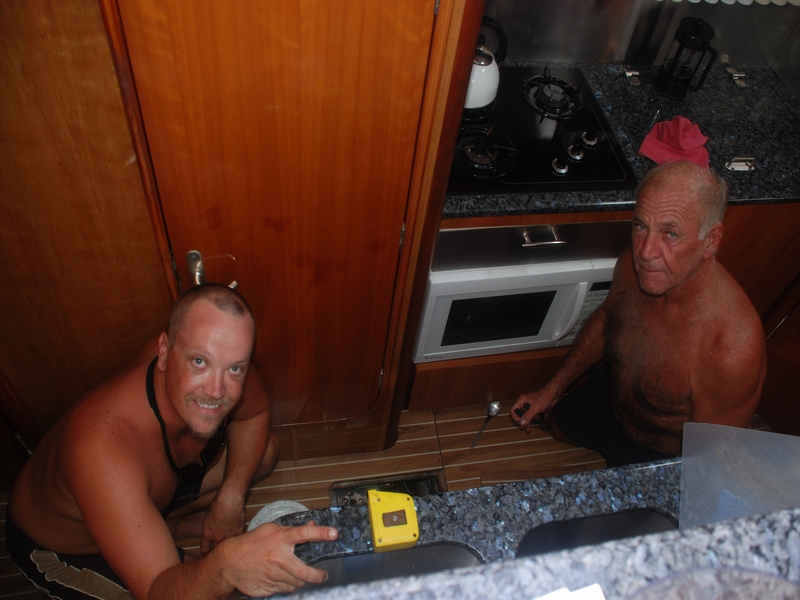
Yeah boat stuff!
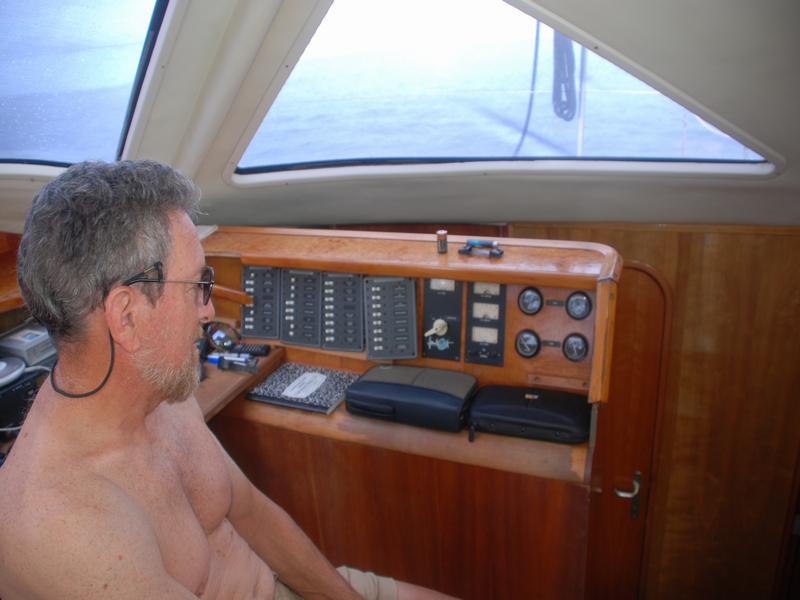
Stuart working hard as usual!
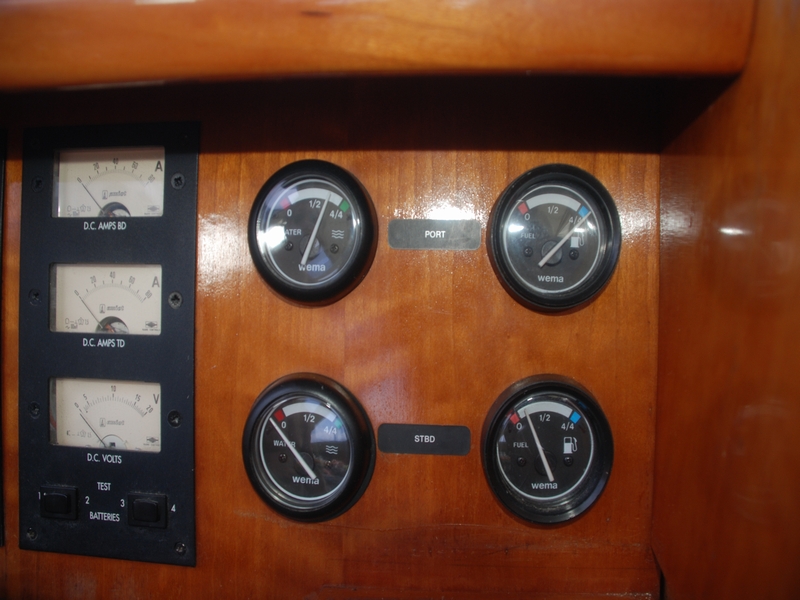
Checking the fuel and water tanks - the port gage was a bit
off, only a whole tank of fuel off!
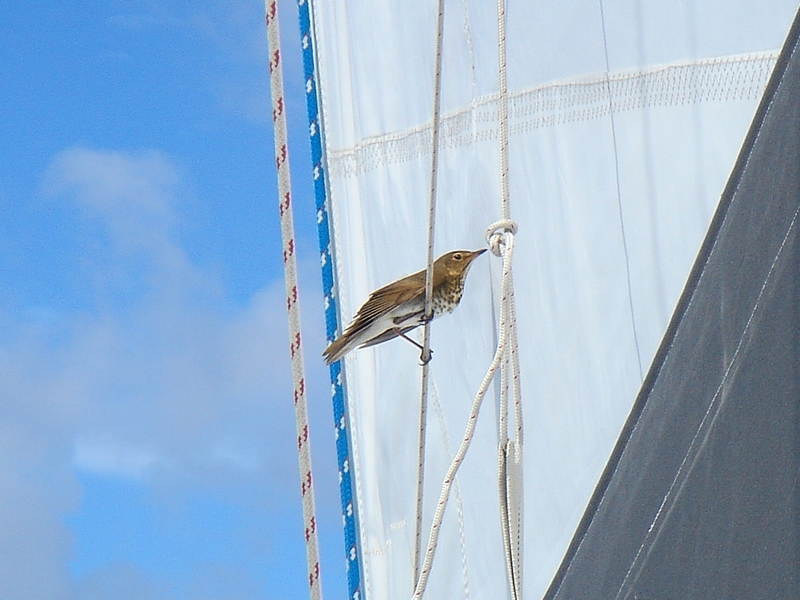
Sparrow at sea
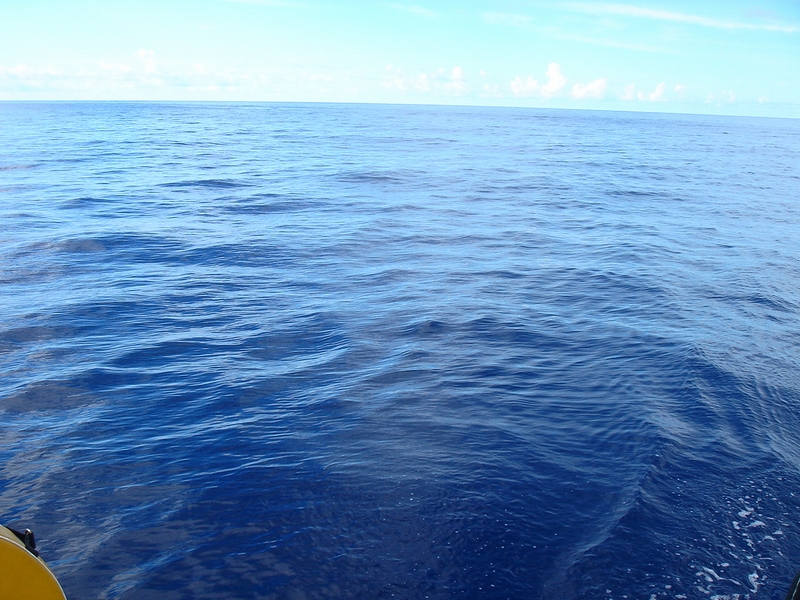
The deep blue
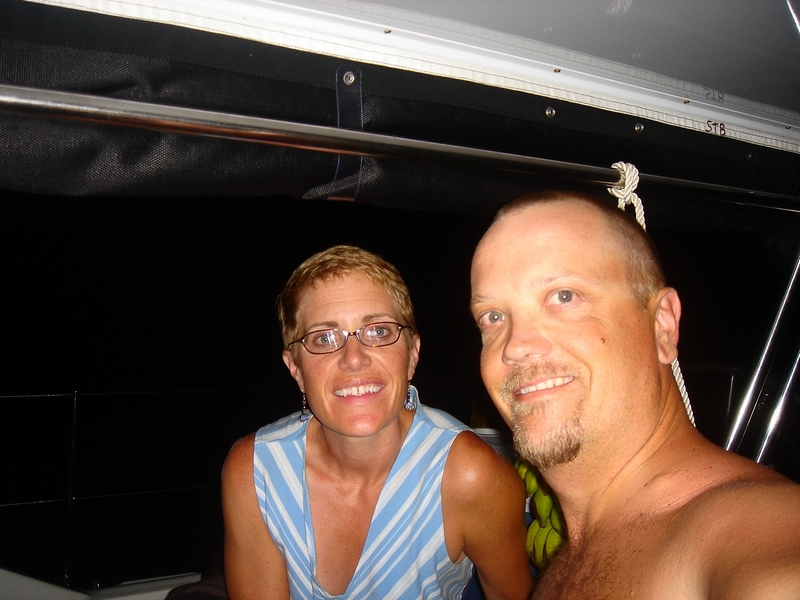
M&K self
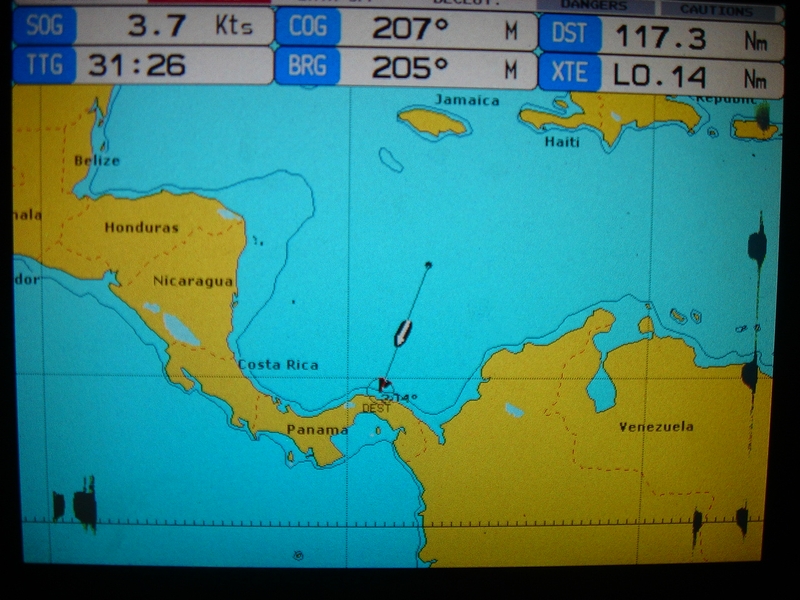
117 miles to go... and counting!
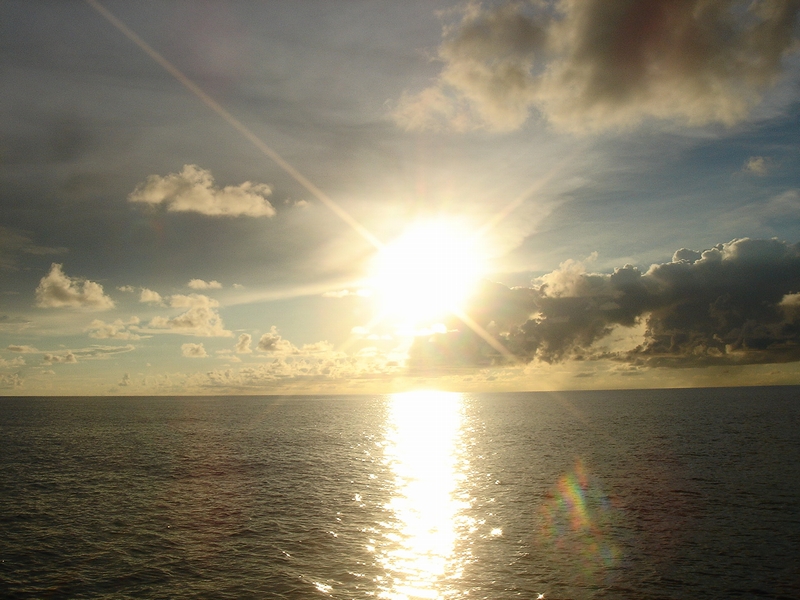
Yeah sunrise again!
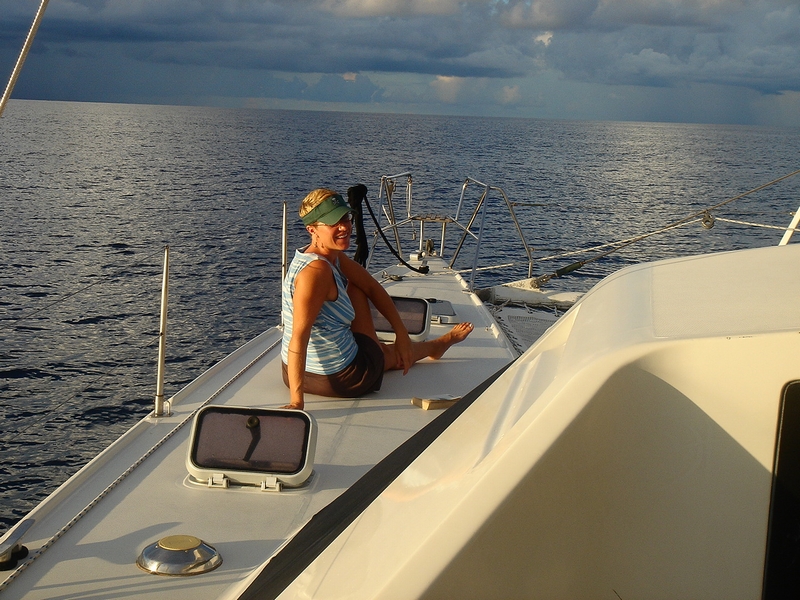
Stretching on the foredeck
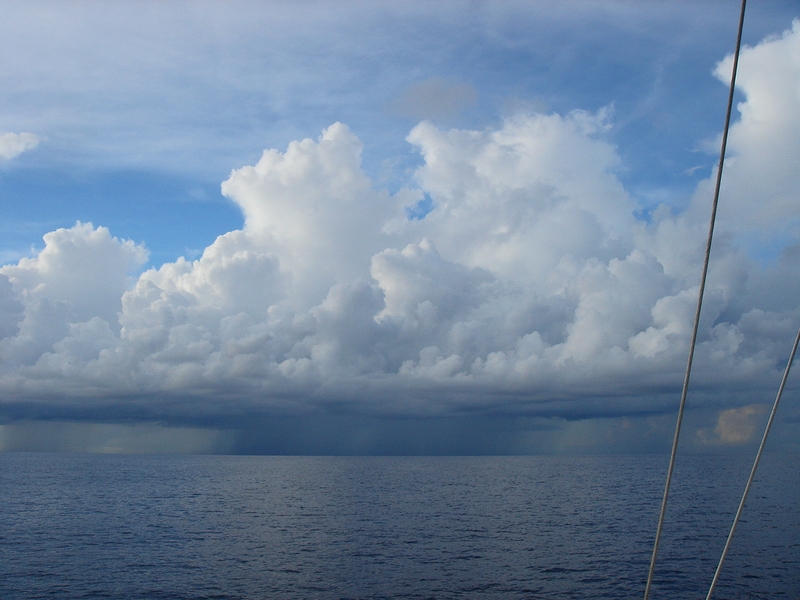
Another squall
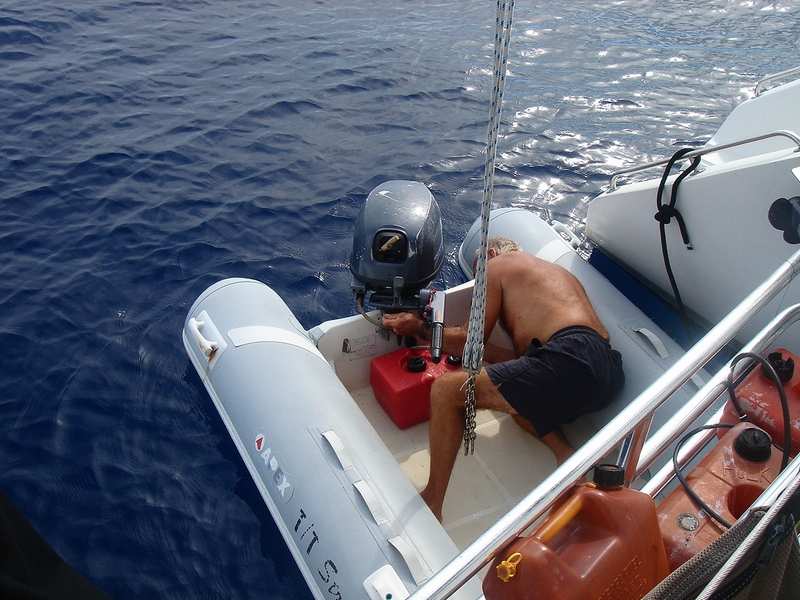
Tightening the motor for the "dinghy push" to Panama
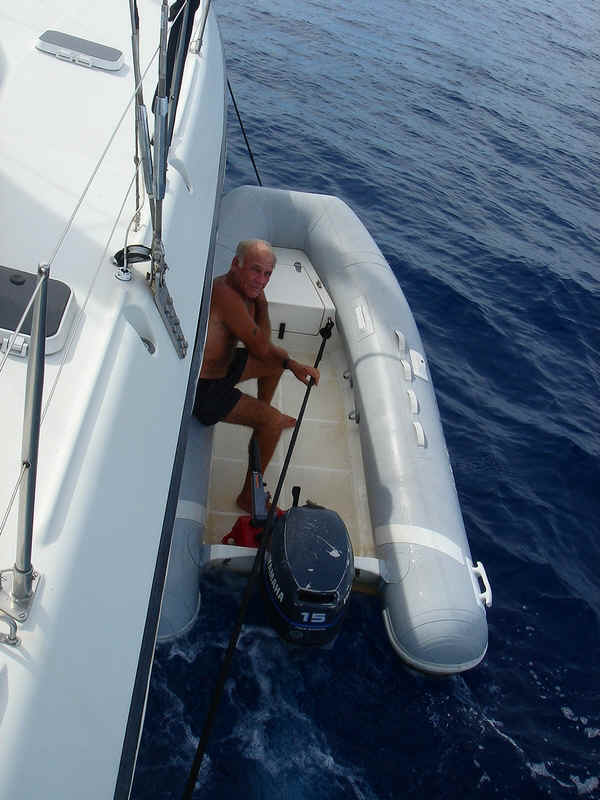
Are we having fun yet??
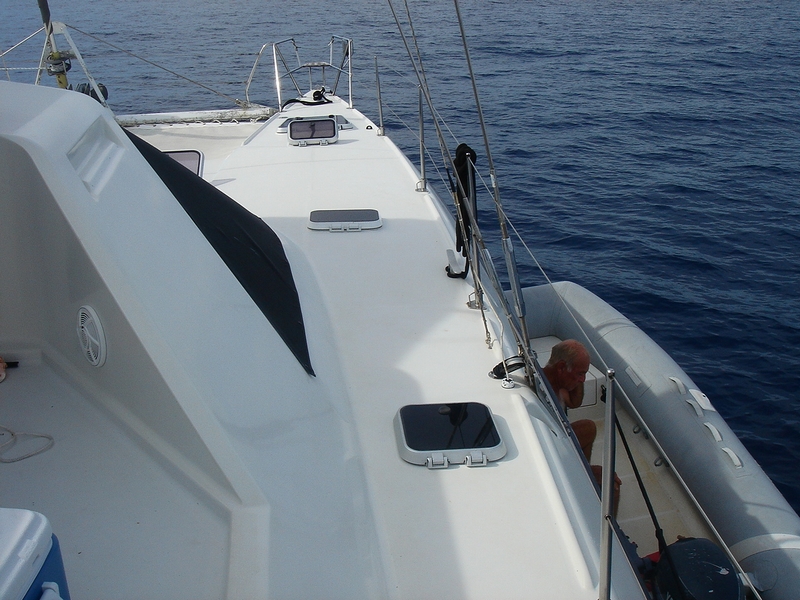
The dinghy on a starboard tow
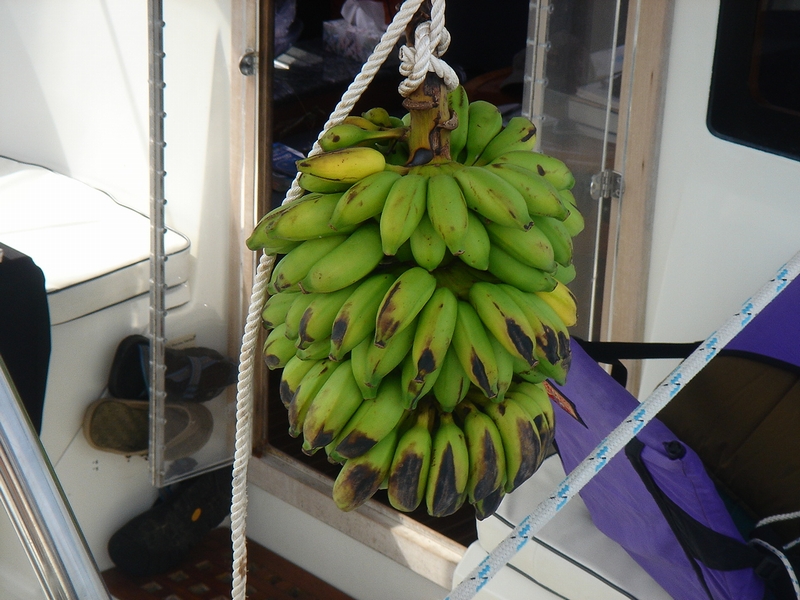
Jamaican bananas a couple are finally yellow after only 7
days!
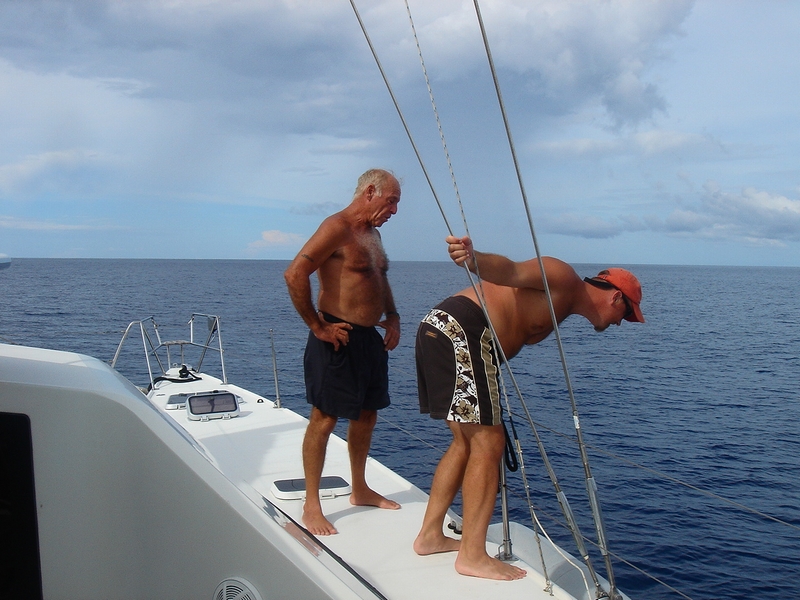
Capt Mark & Mike checking on the dinghy
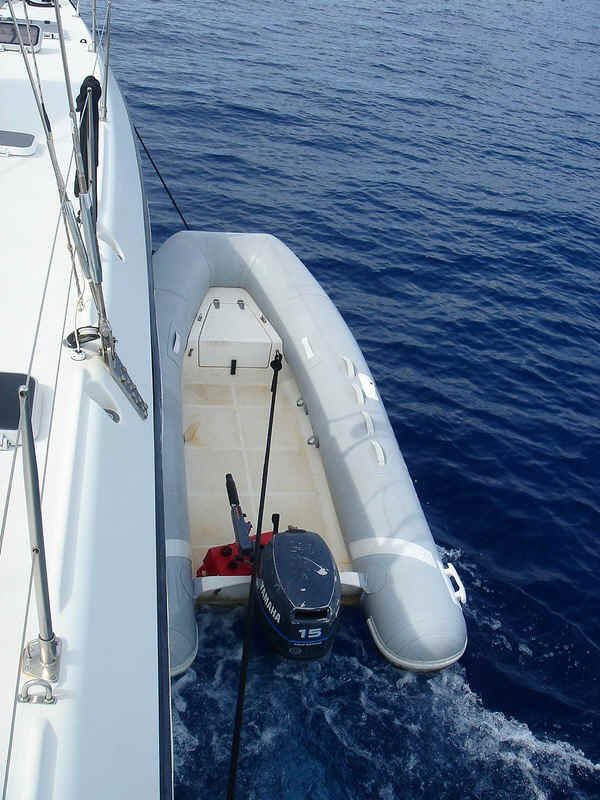
There she is, unmanned and pushing Stray Cat to Panama!
Go girl go!
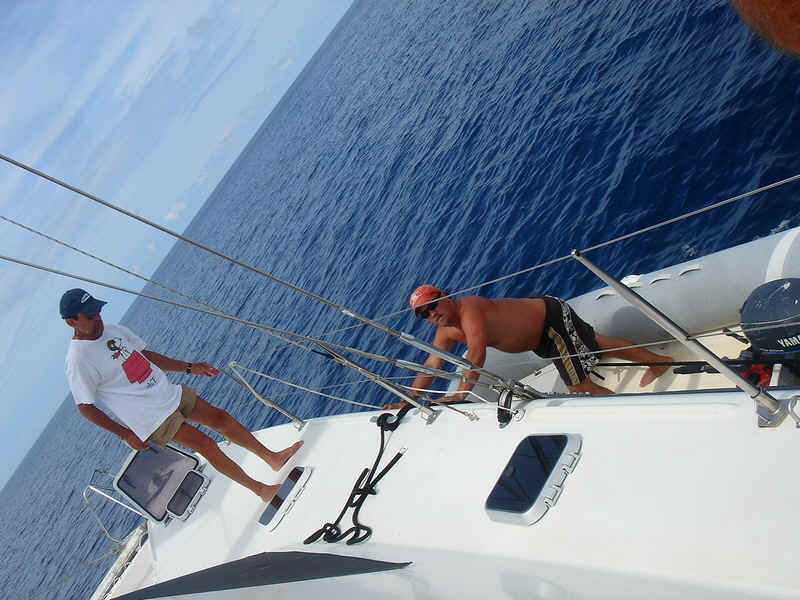
Mike & Stuart making adjustments
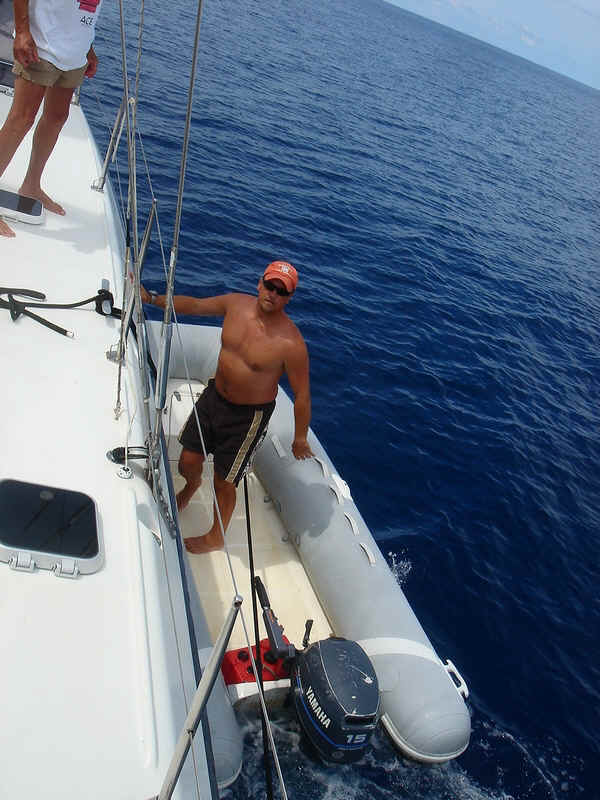
Looks good
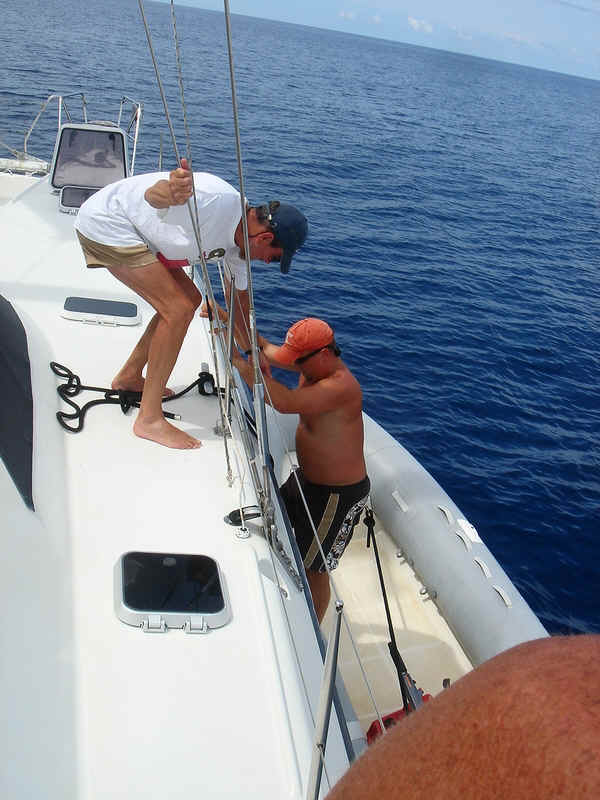
Mike getting a hand up
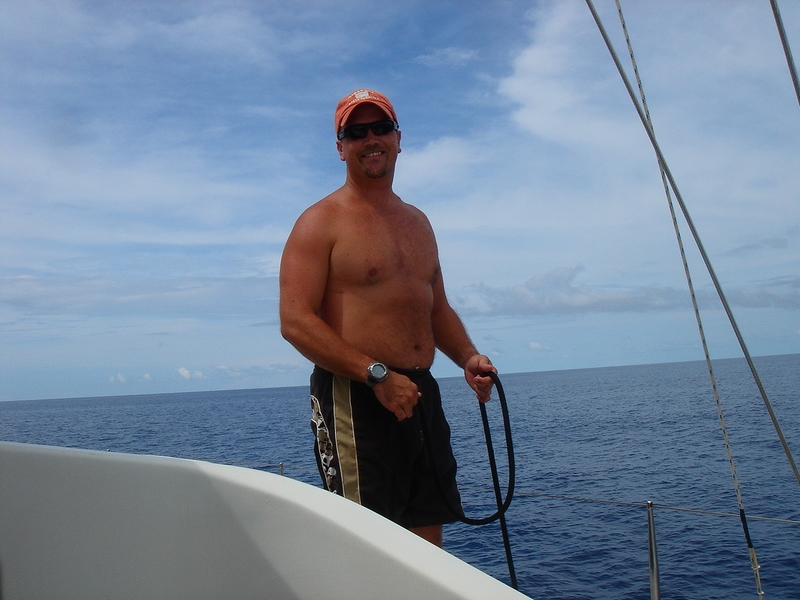
That was FUN!!
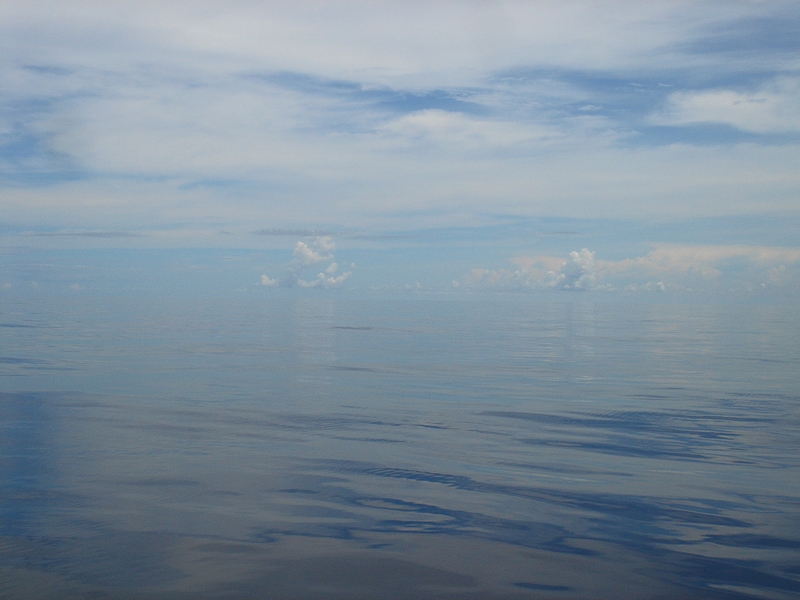
The doldrums!
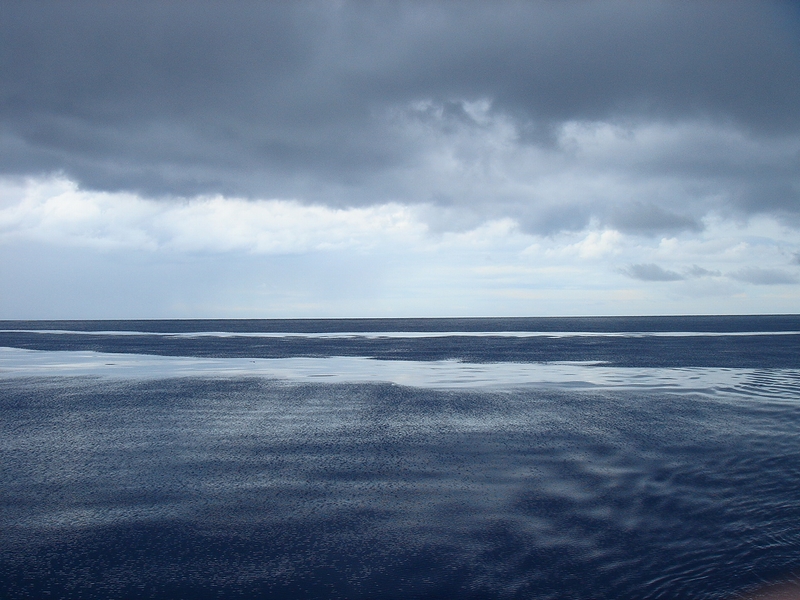
Another Squall!
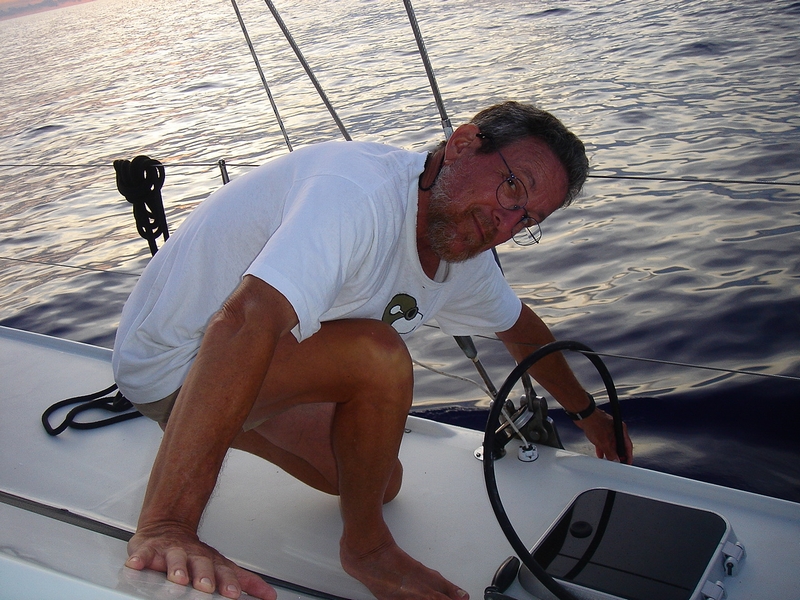
Stu putting the last of our diesel into Stray Cat's starboard
tank
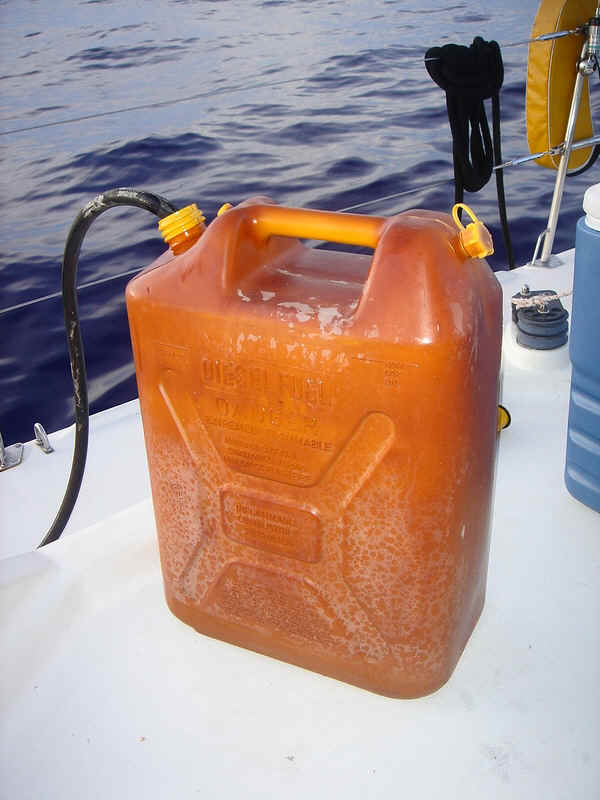
Jerry can of diesel
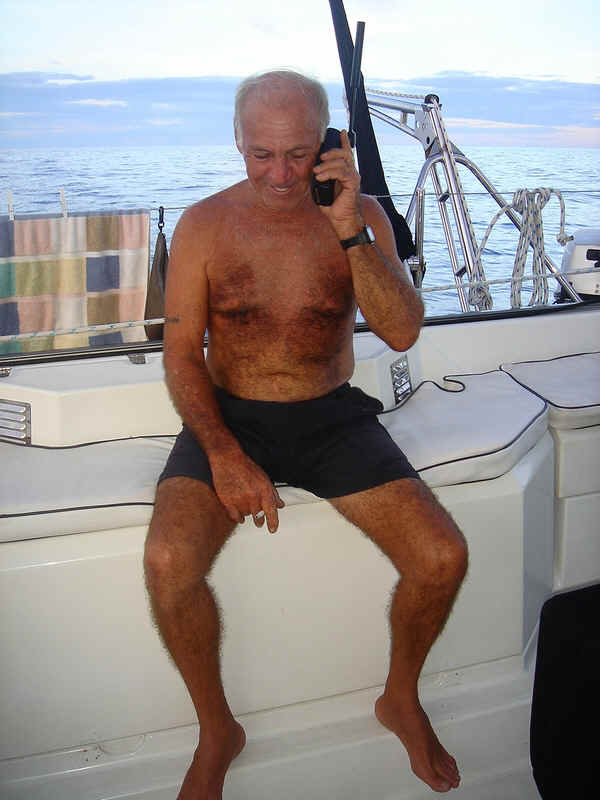
Capt Mark on the satellite phone
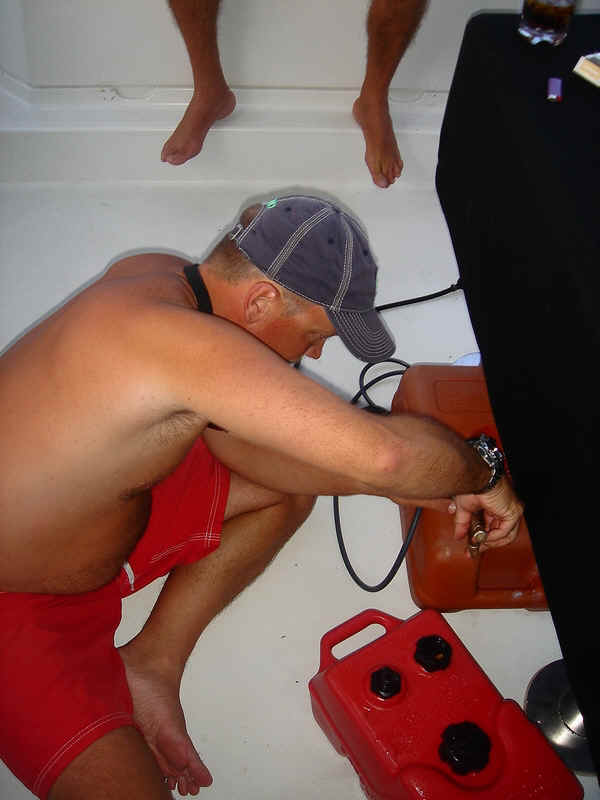
Mikey filtering more water out of the gasoline, they do not
mix!
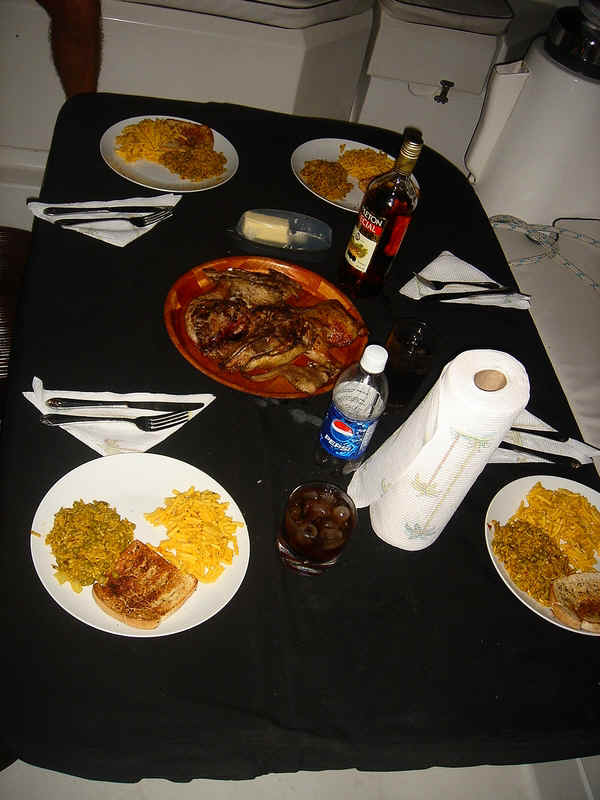
Still just wasting away with some Jamaican Jerk chicken
- YUM!
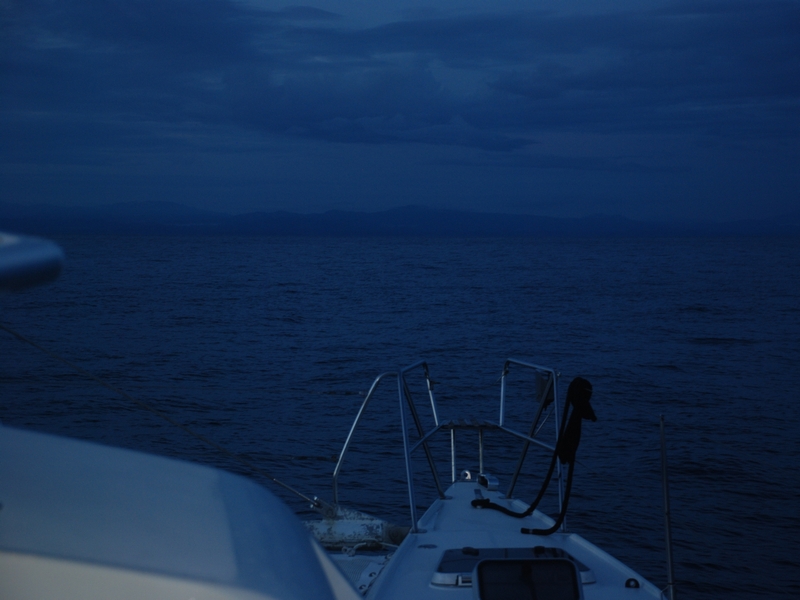
Ladies and Gentlemen, I'd like to introduce ----- Panama!!
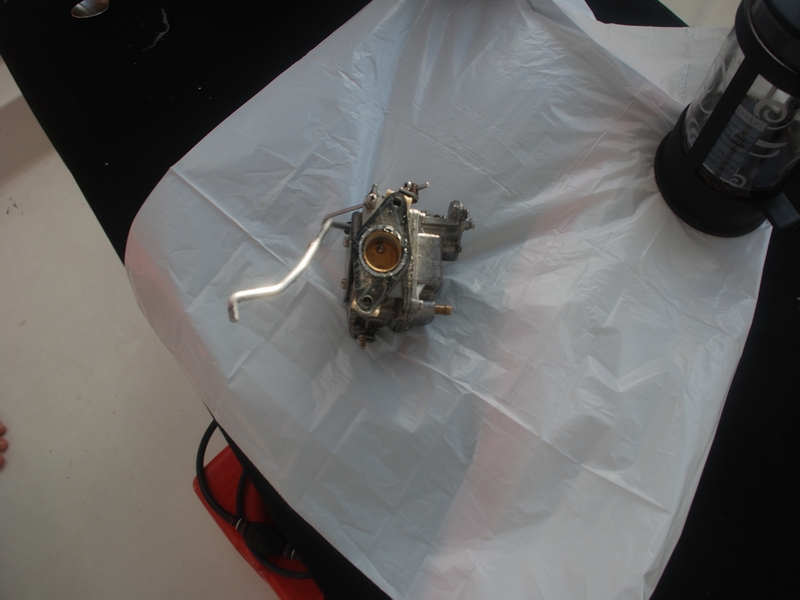
Carby! The carburetor for the outboard motor, a Yamaha 15hp
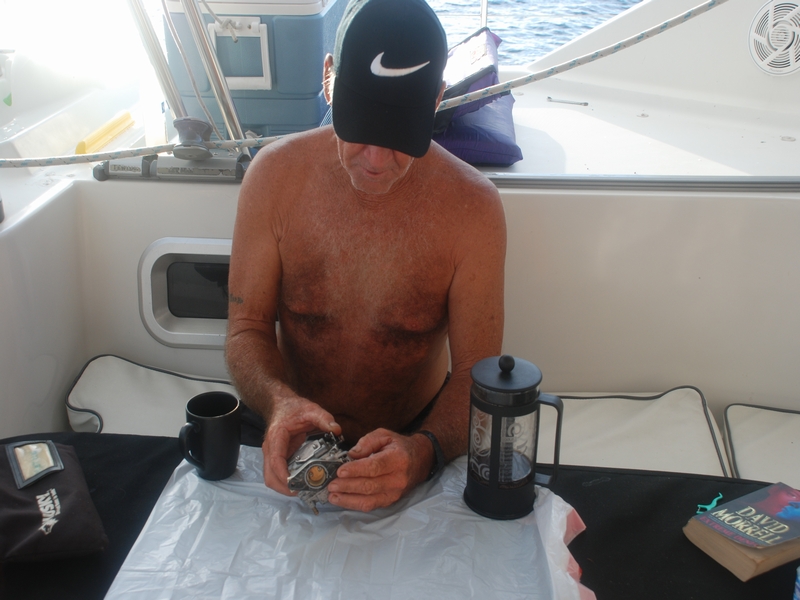
Capt Mark likes to take Carby out to play every couple of
days, Carby does not like water at all!
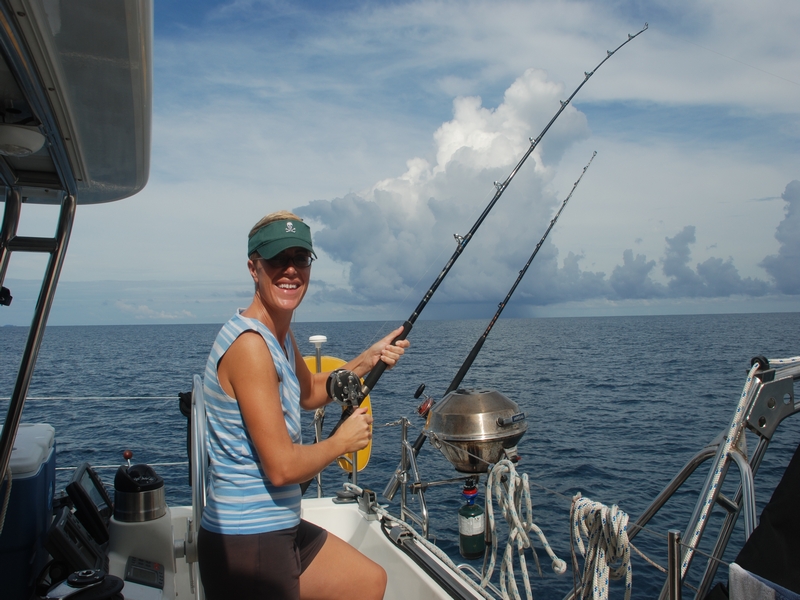
Finally my turn for the Big Rock

Feels like about an 800 pounder!
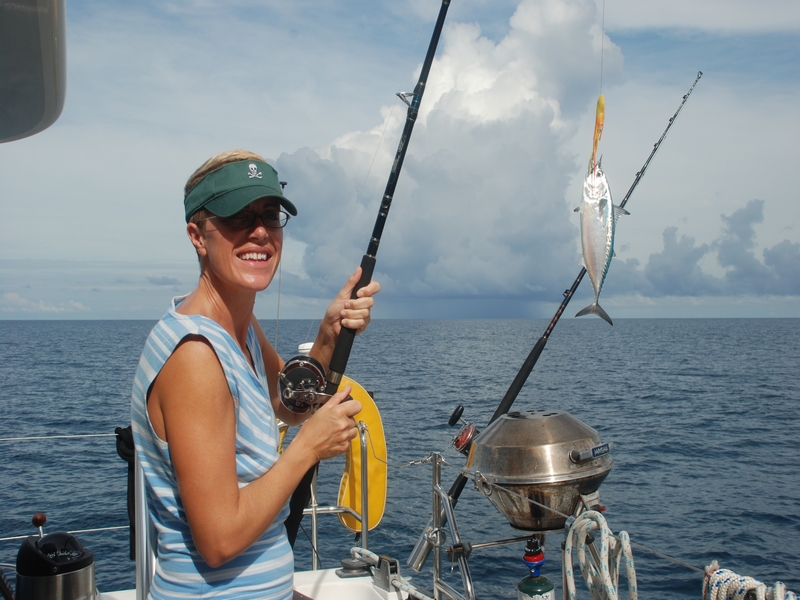
We let him go with a little toothache, and Kate did not win
the tournament
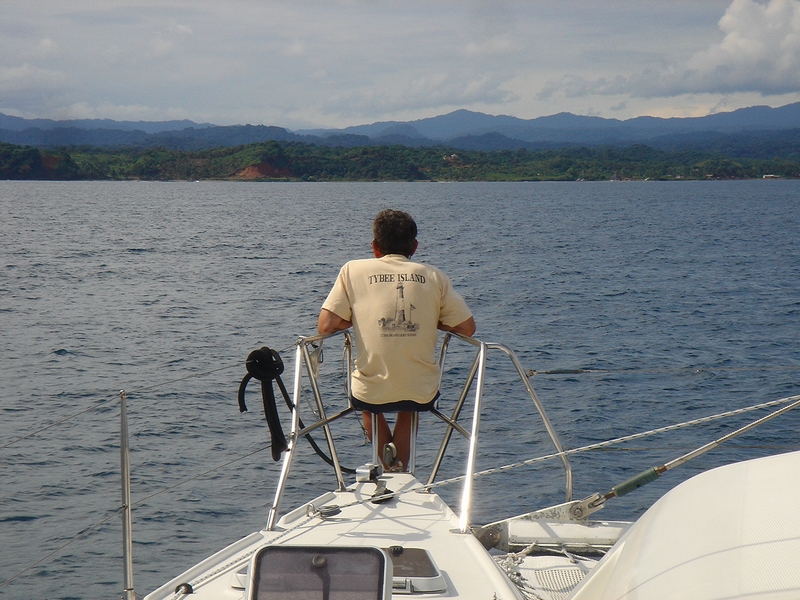
Capt. Stu & Panama!
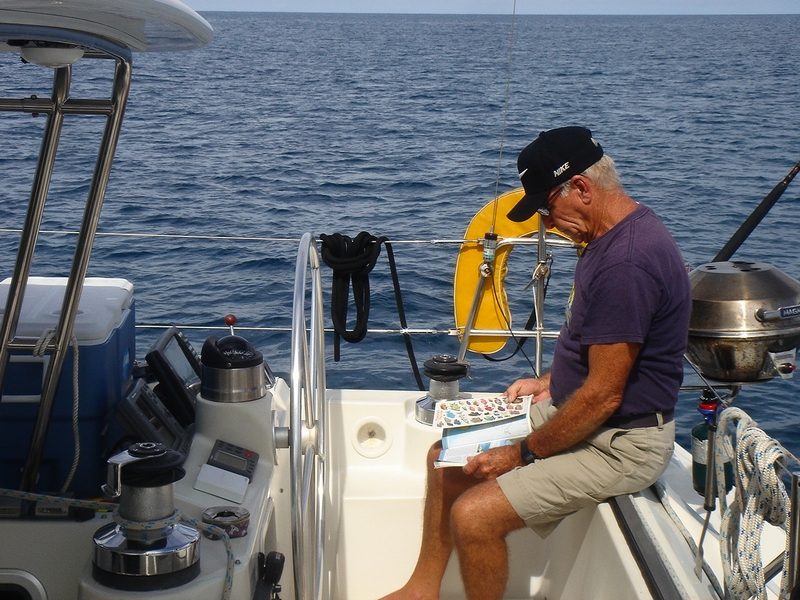
Capt Mark studying up on his fish
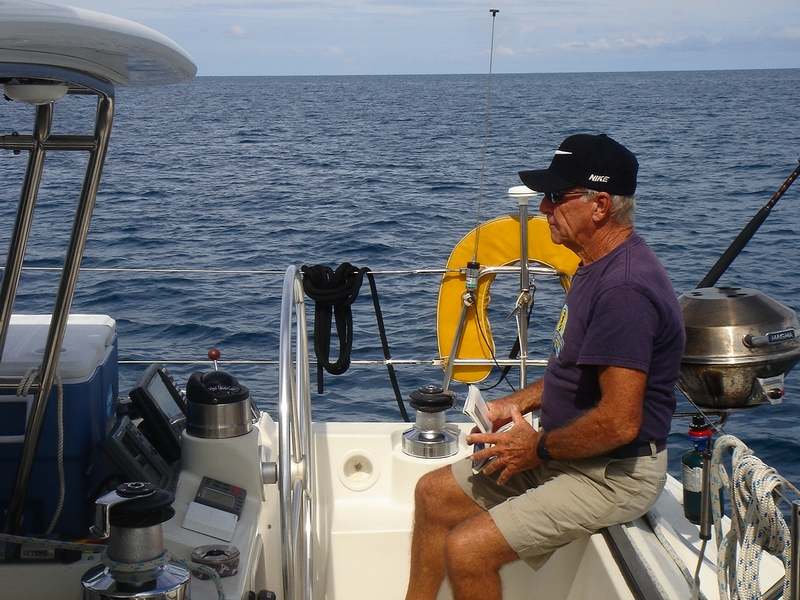
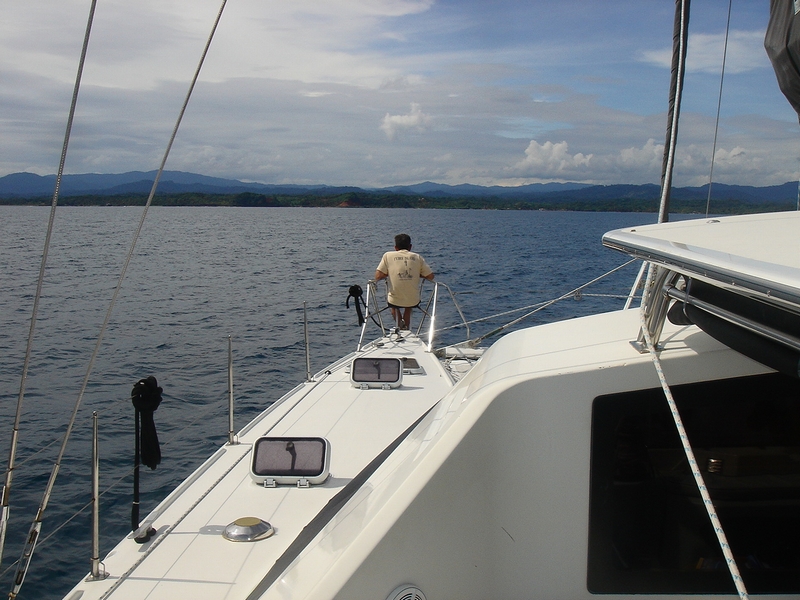
Land Ho!
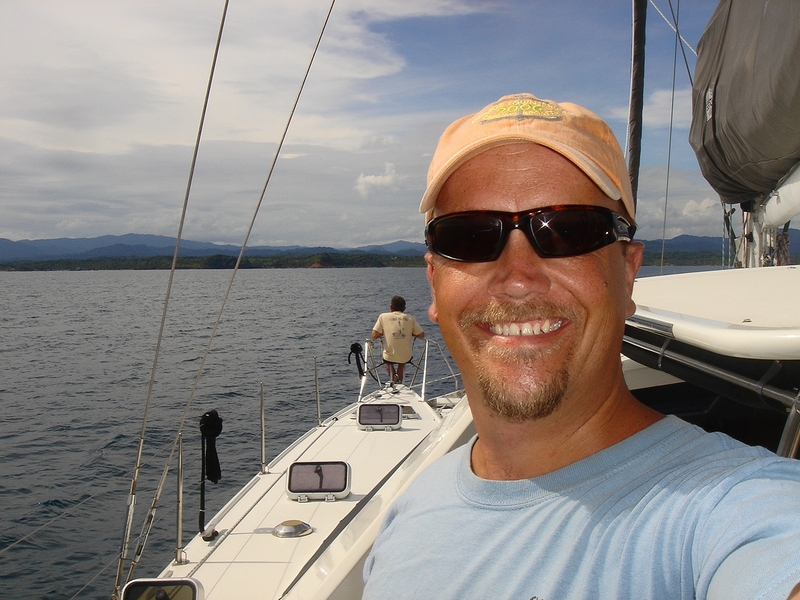
Mikey likey Panama! We live again!!
|